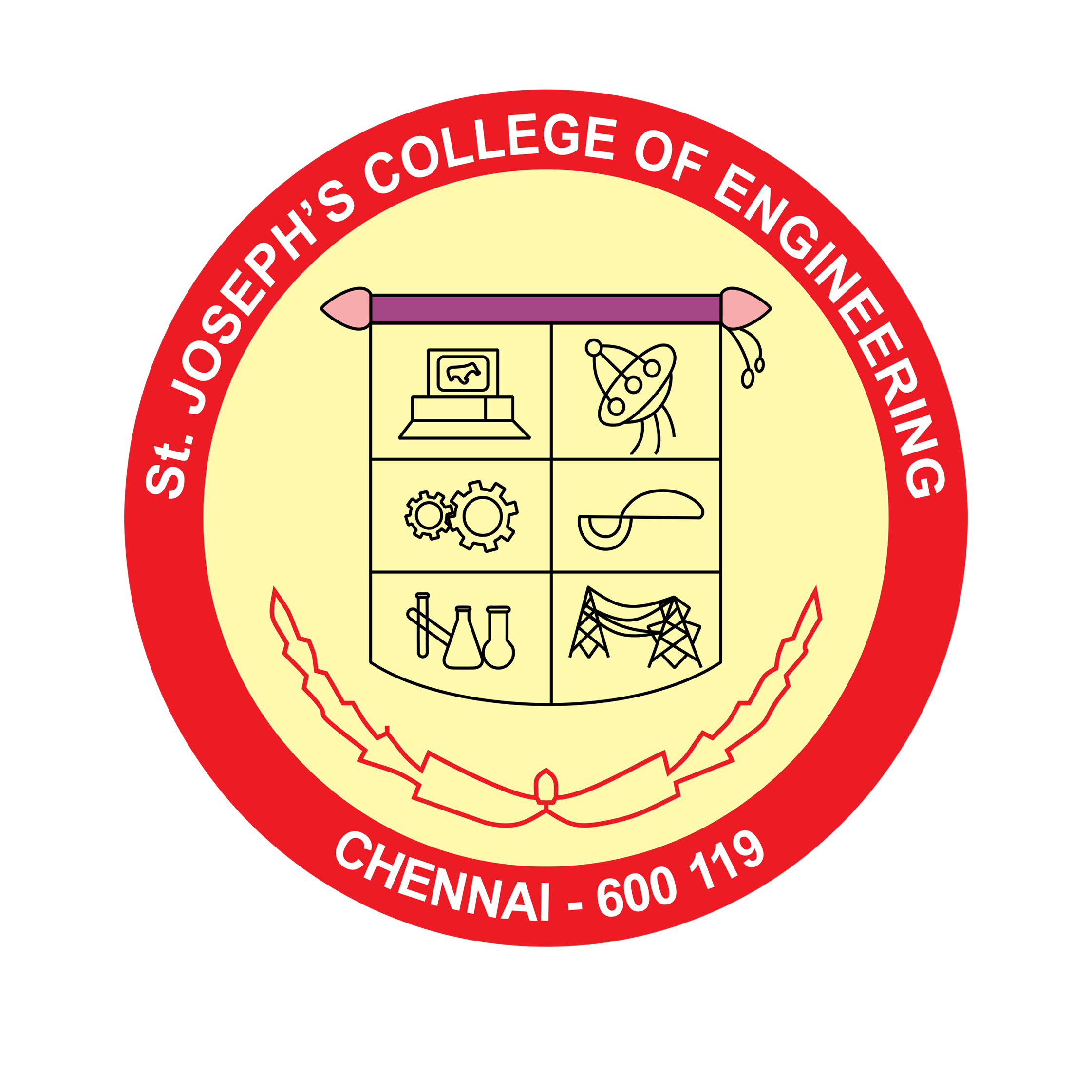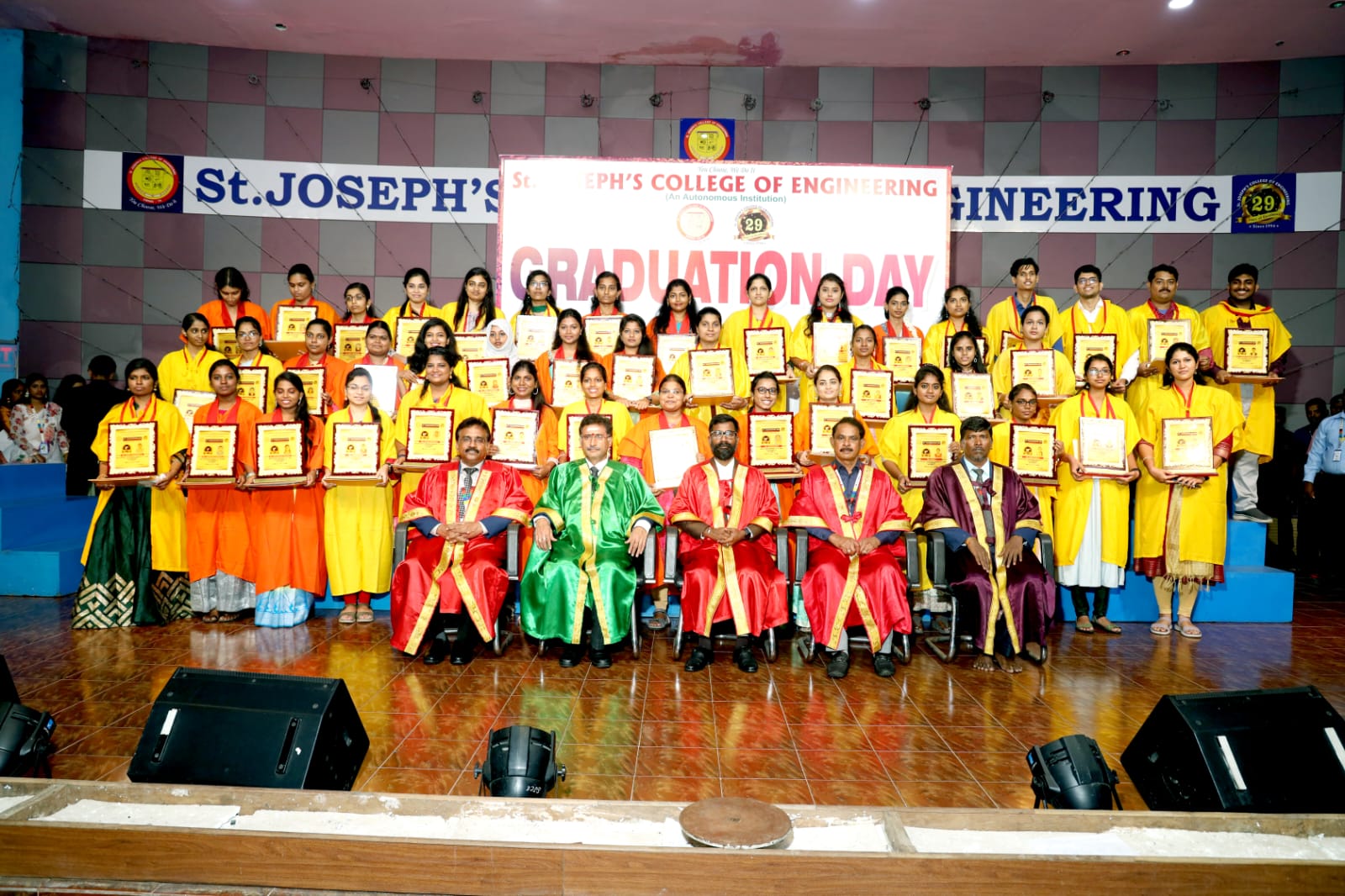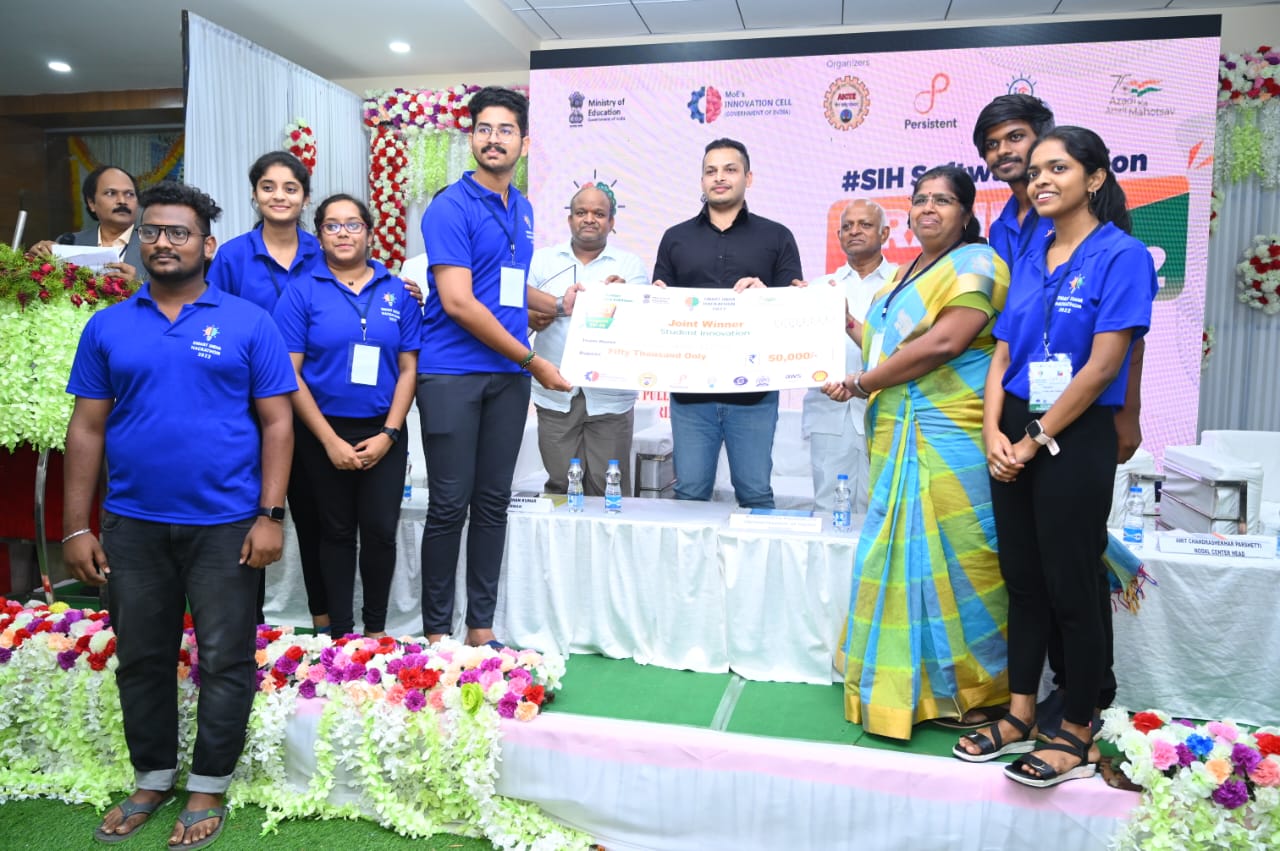Faculty
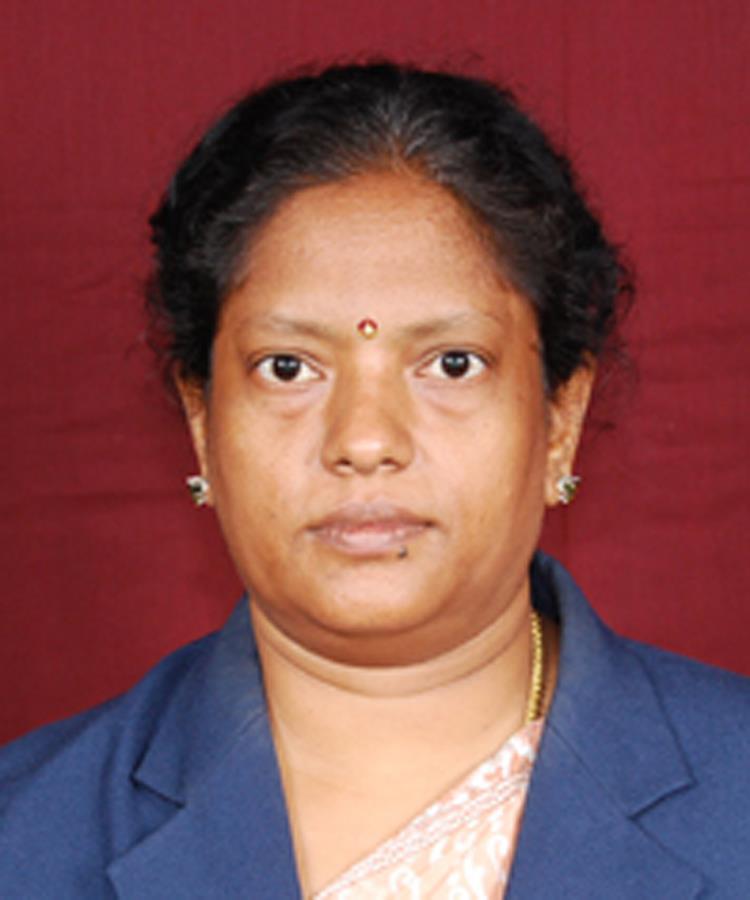
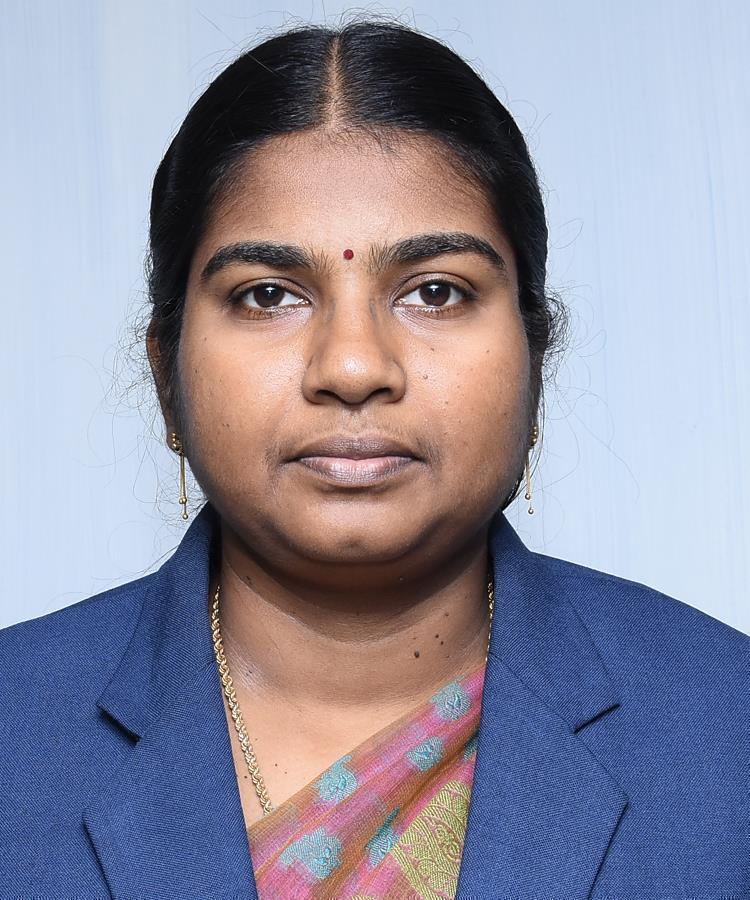
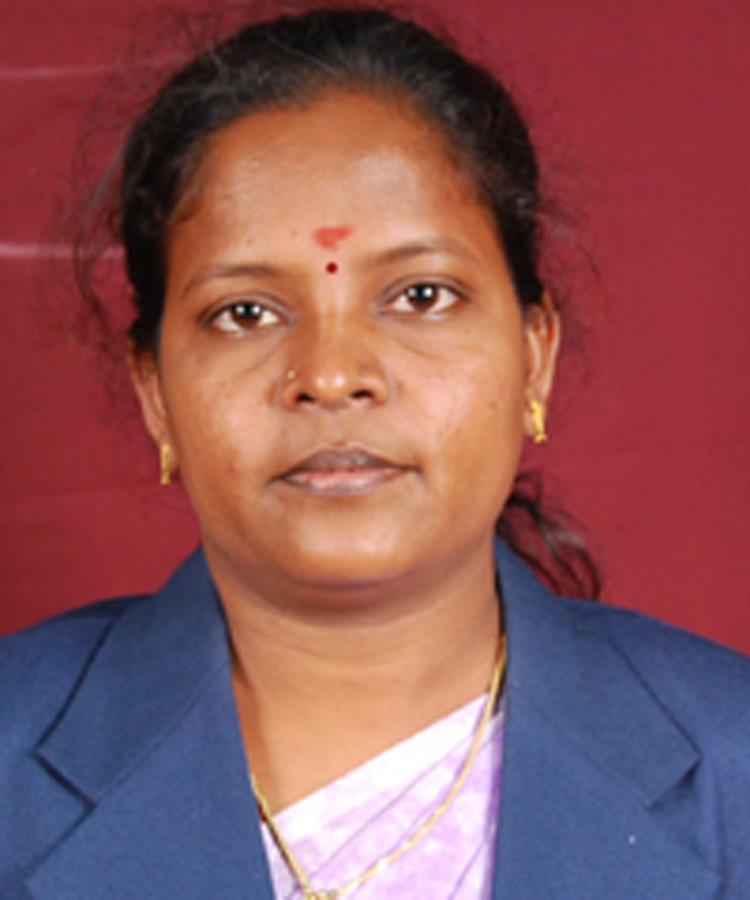
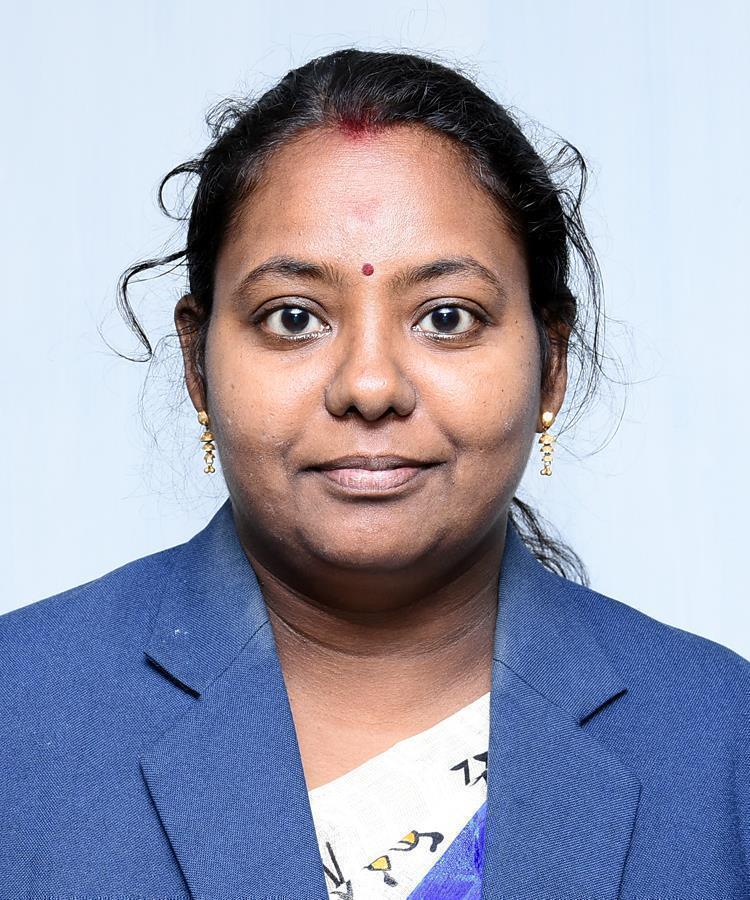
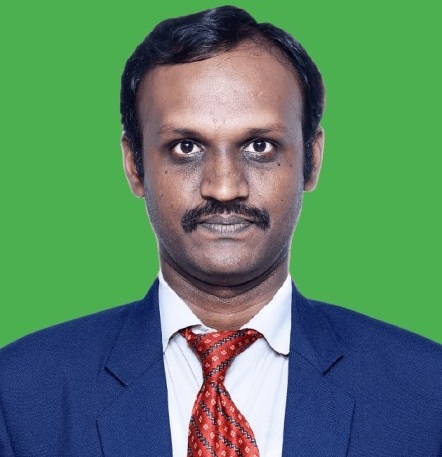
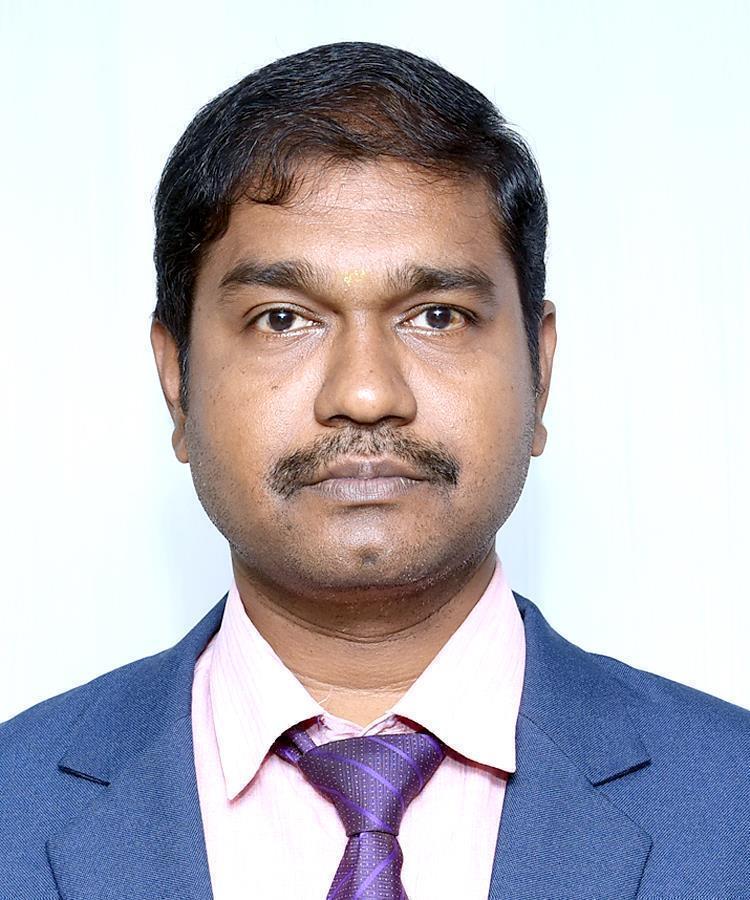
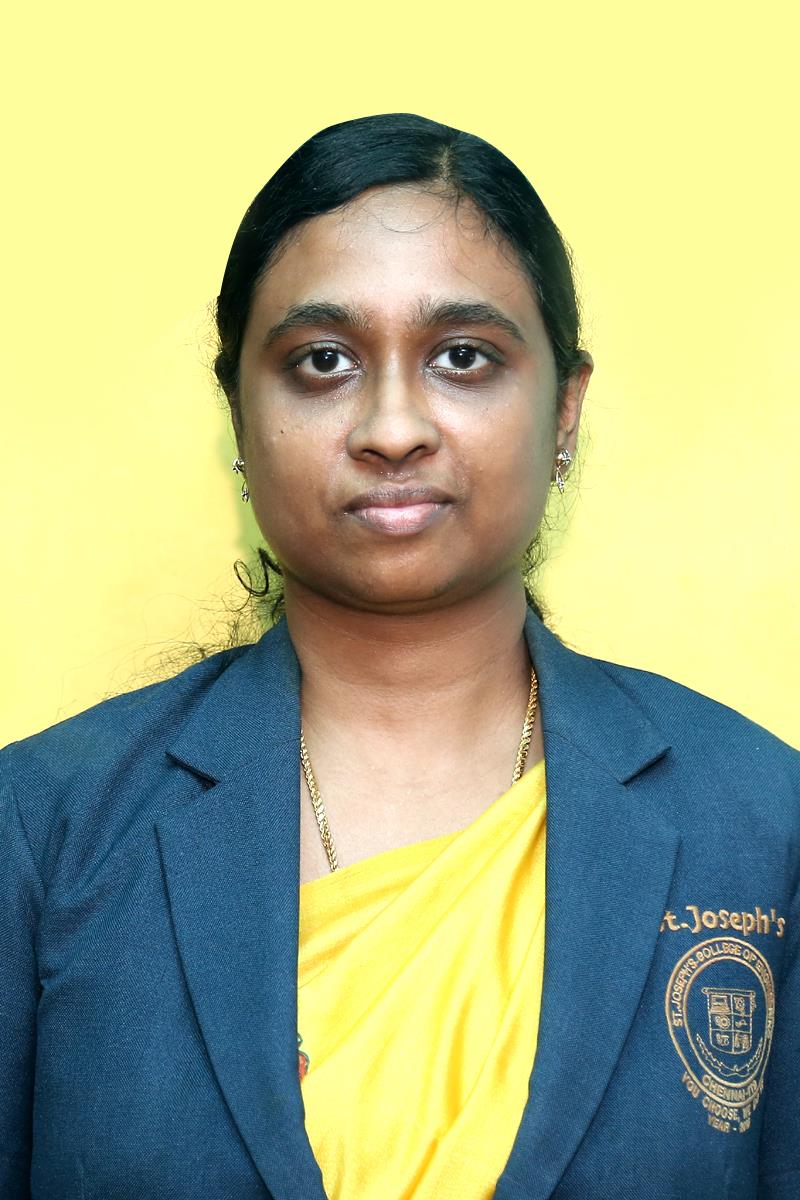
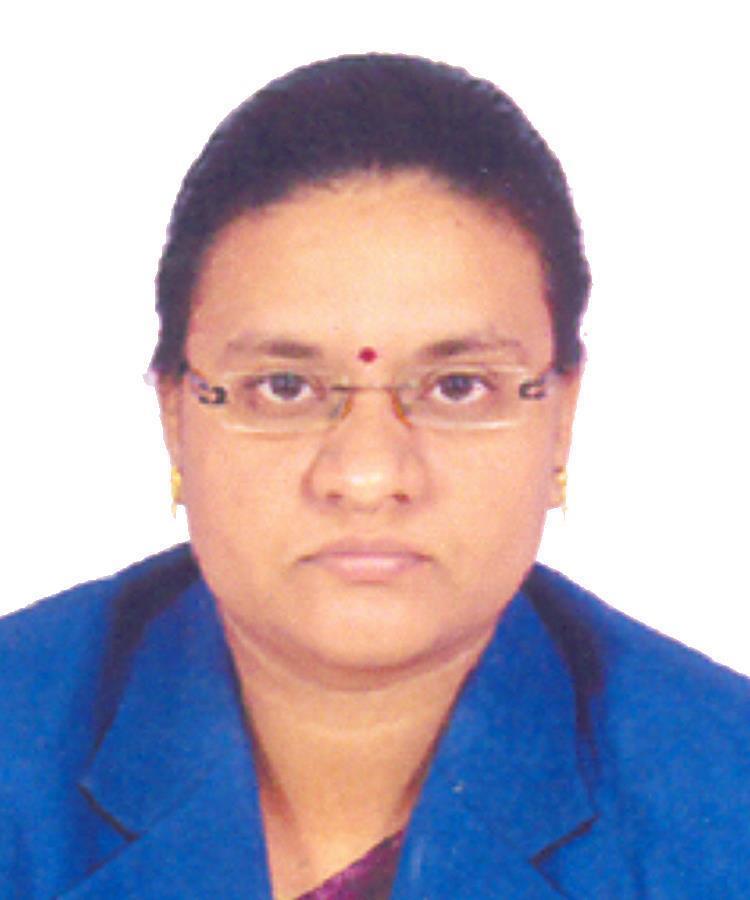
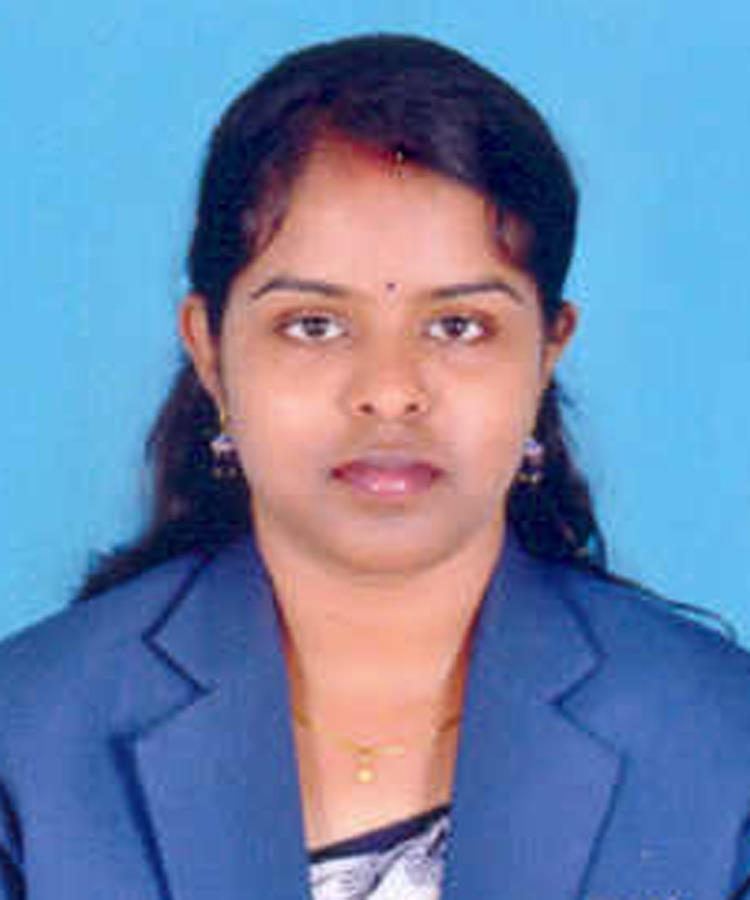
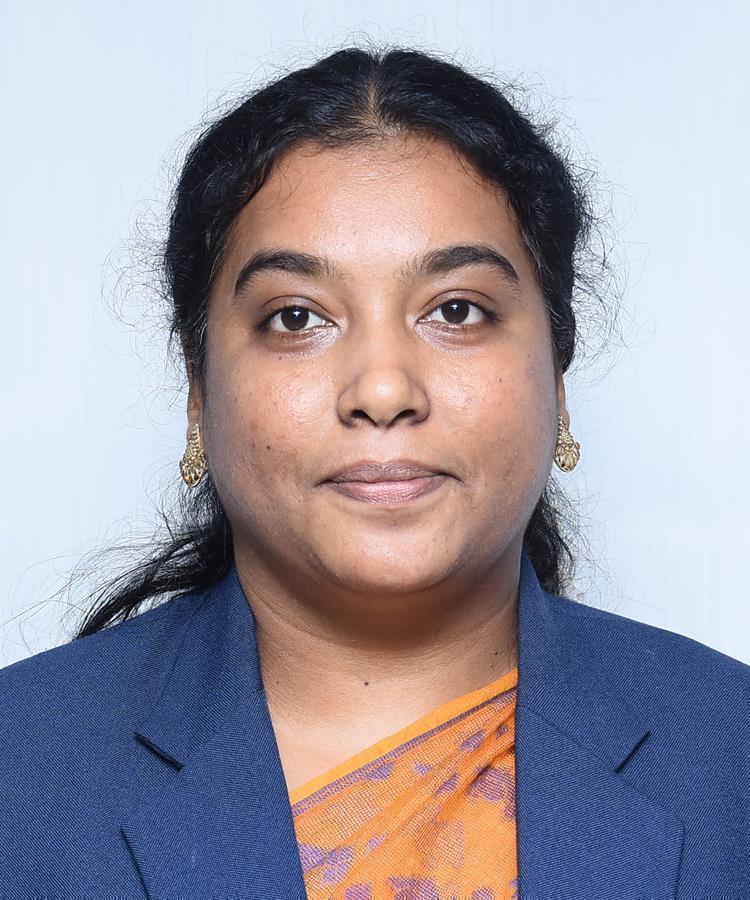
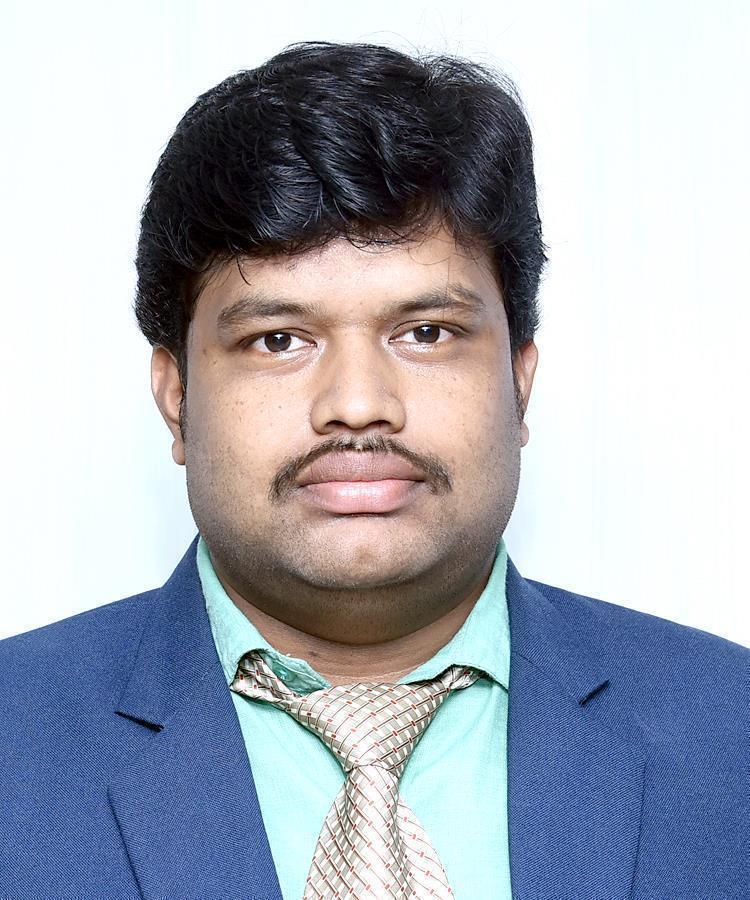
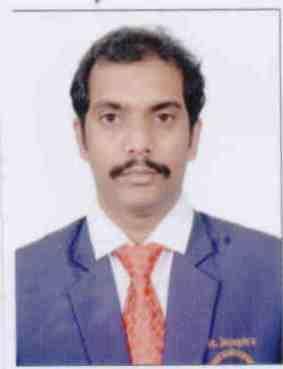
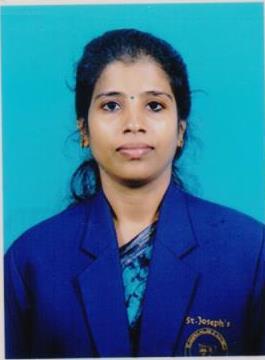
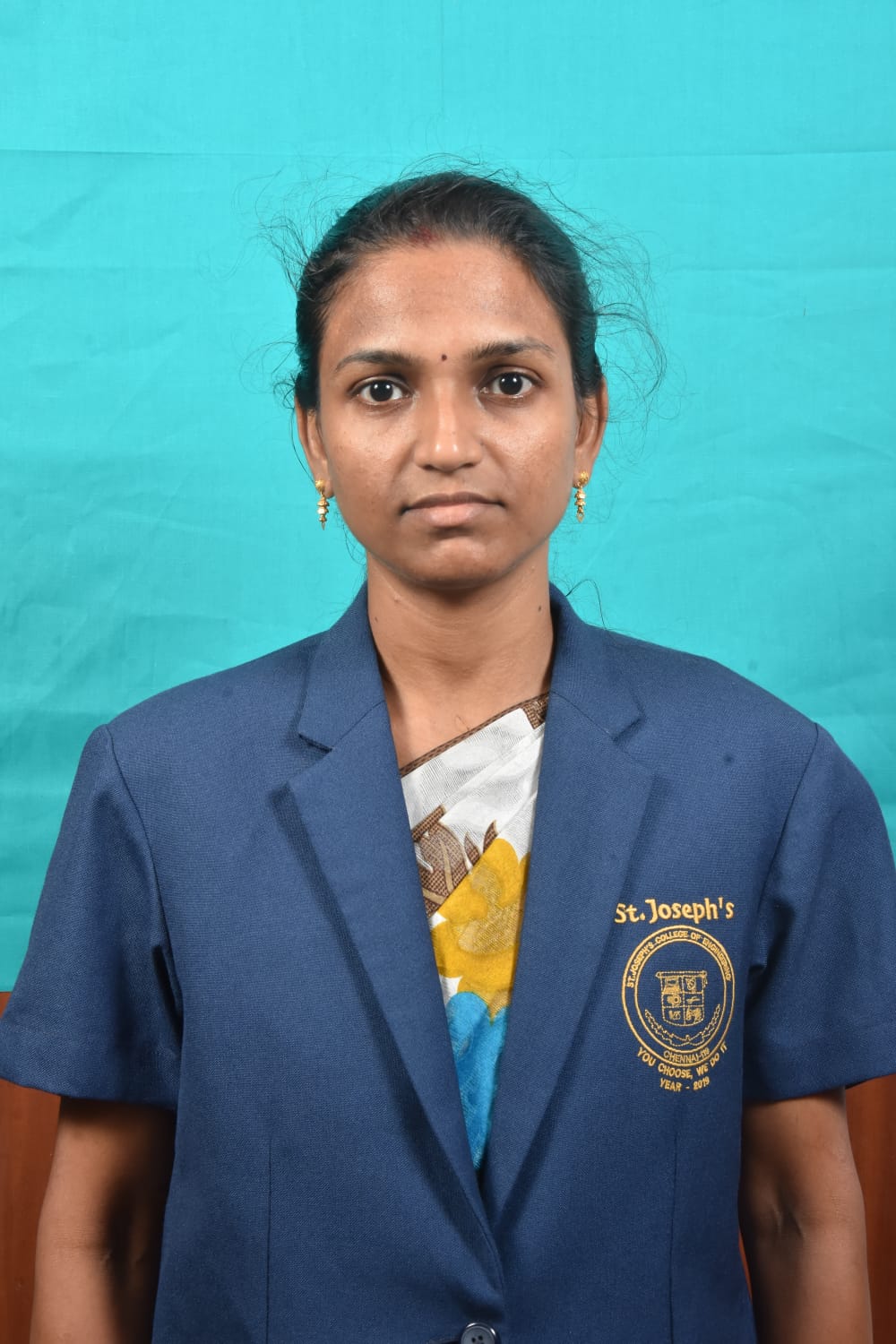
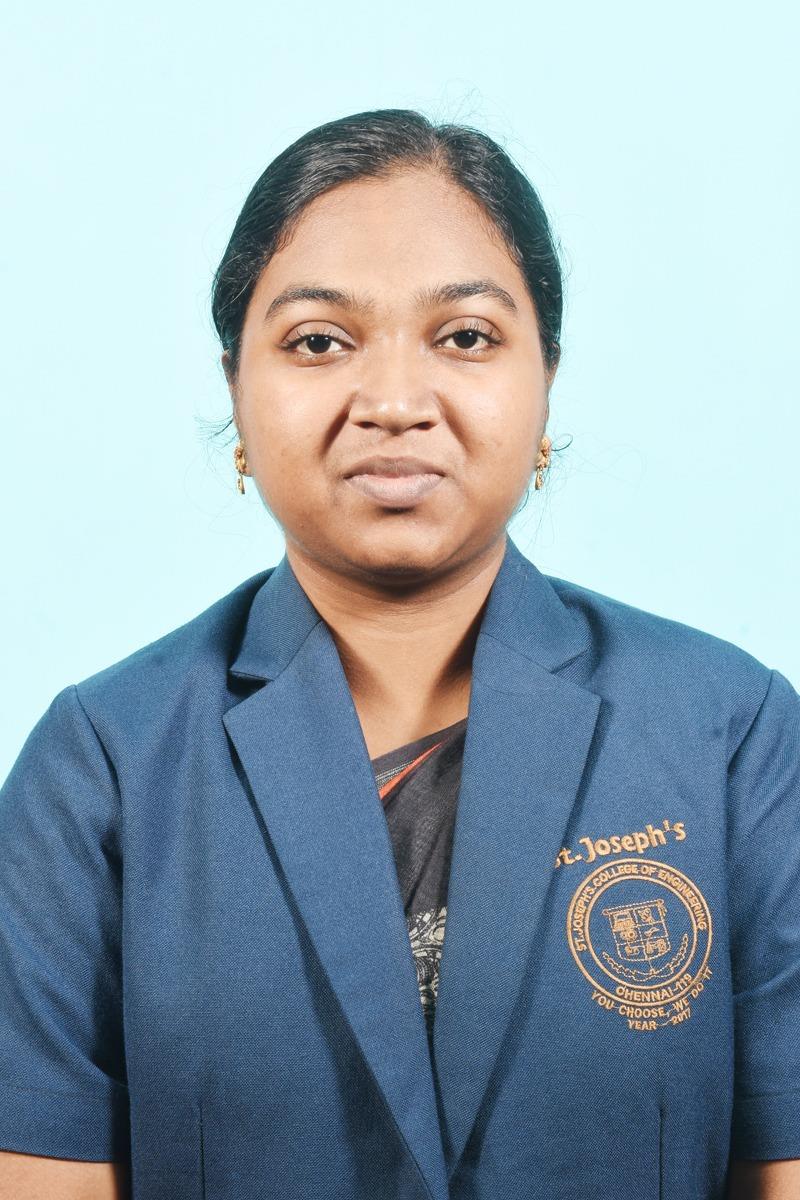
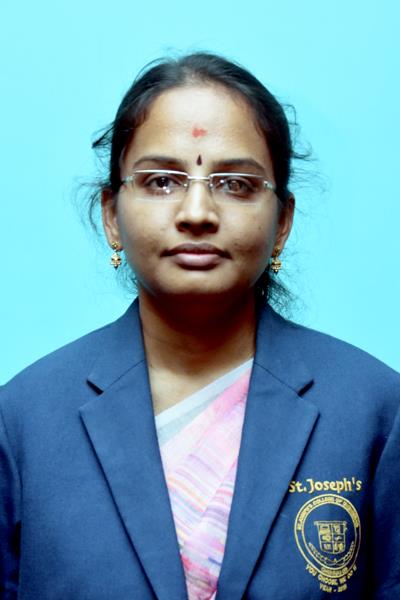
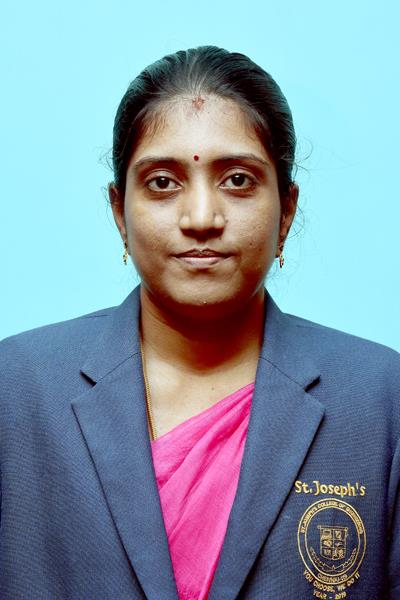
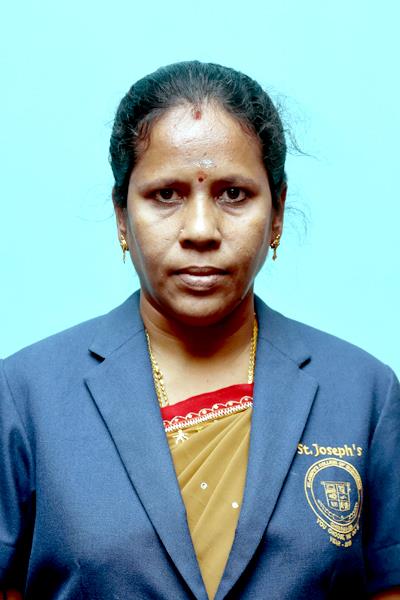
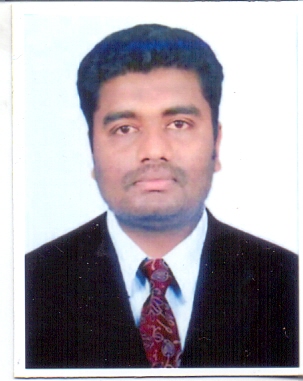
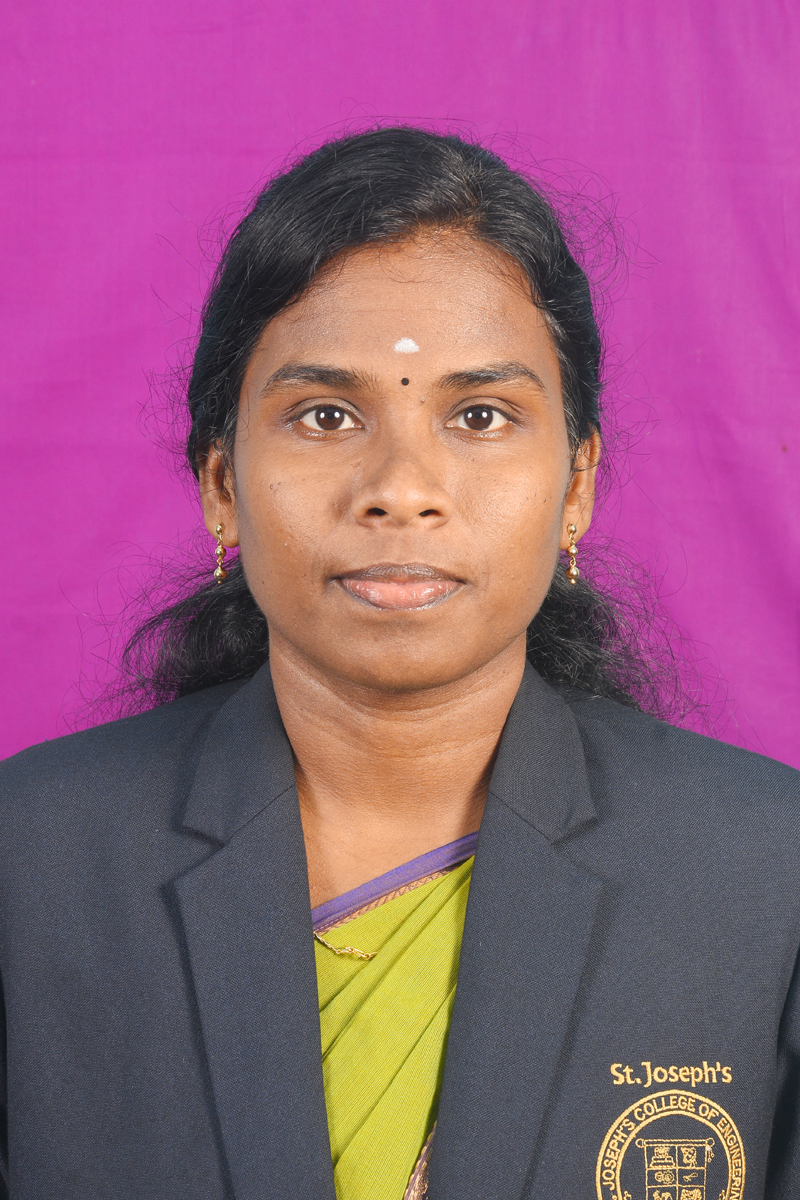
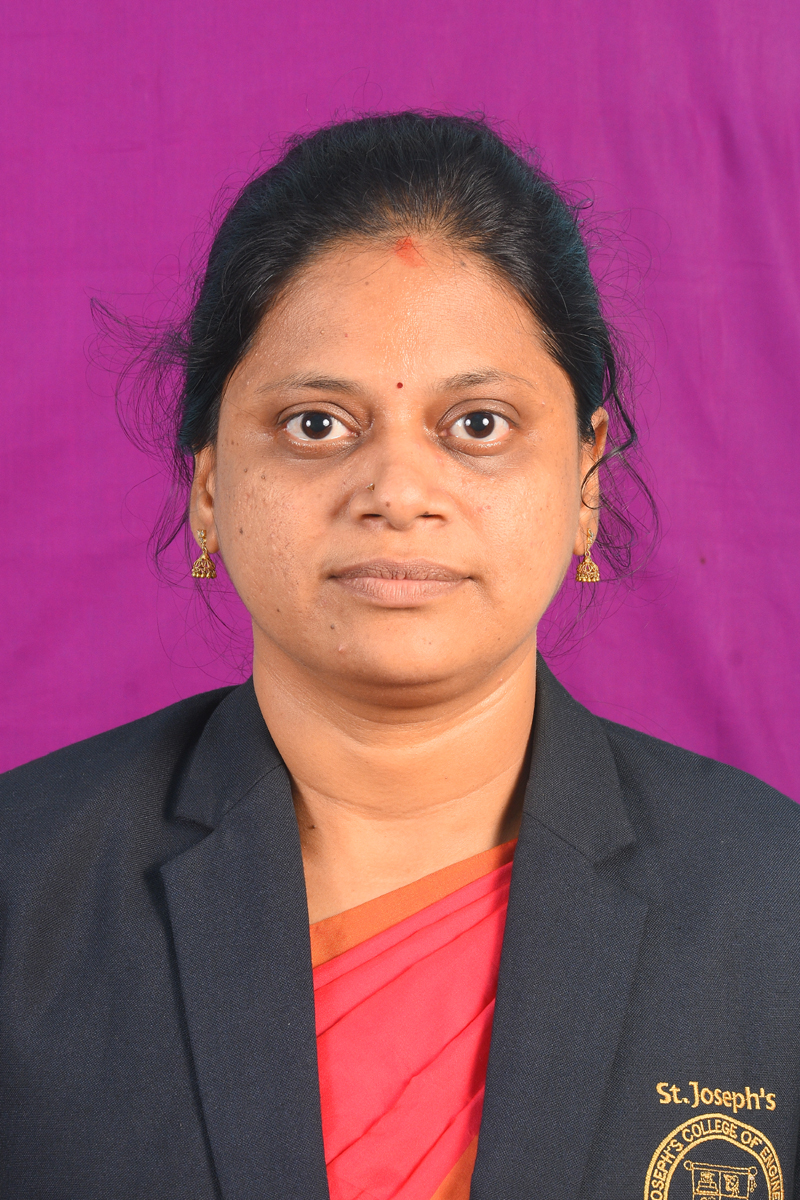
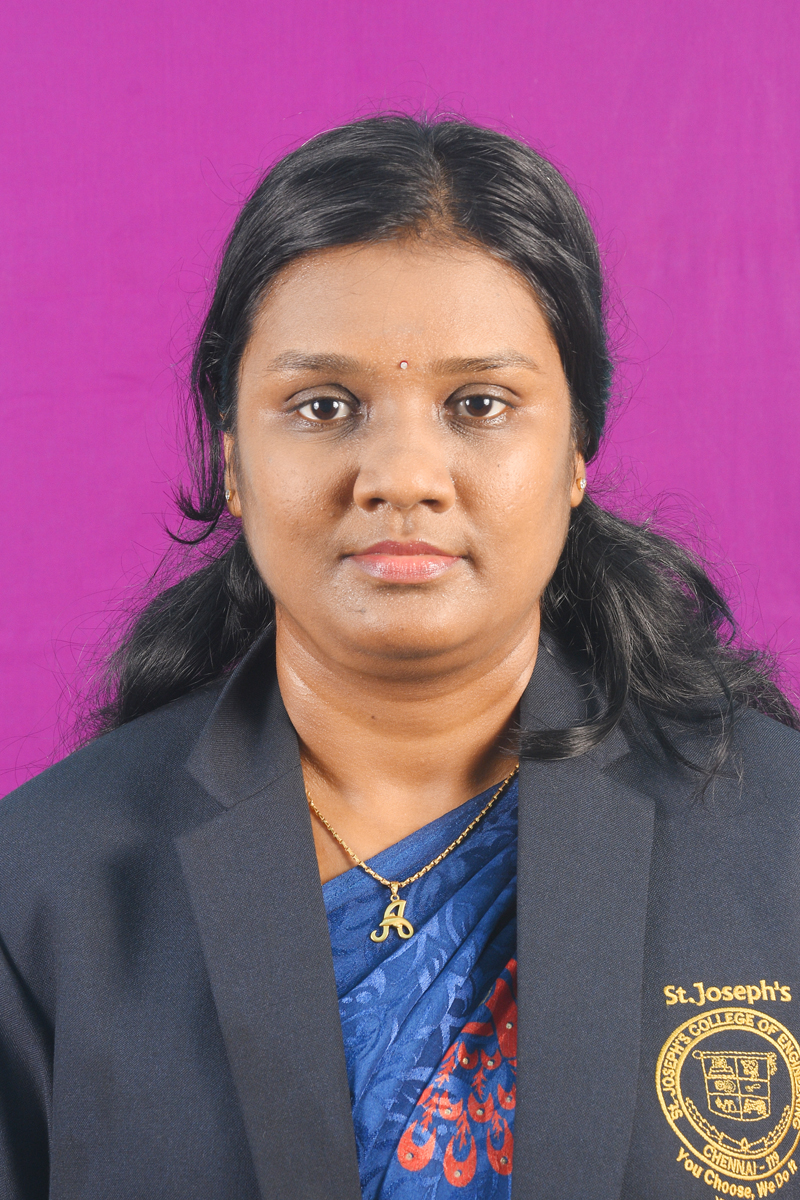
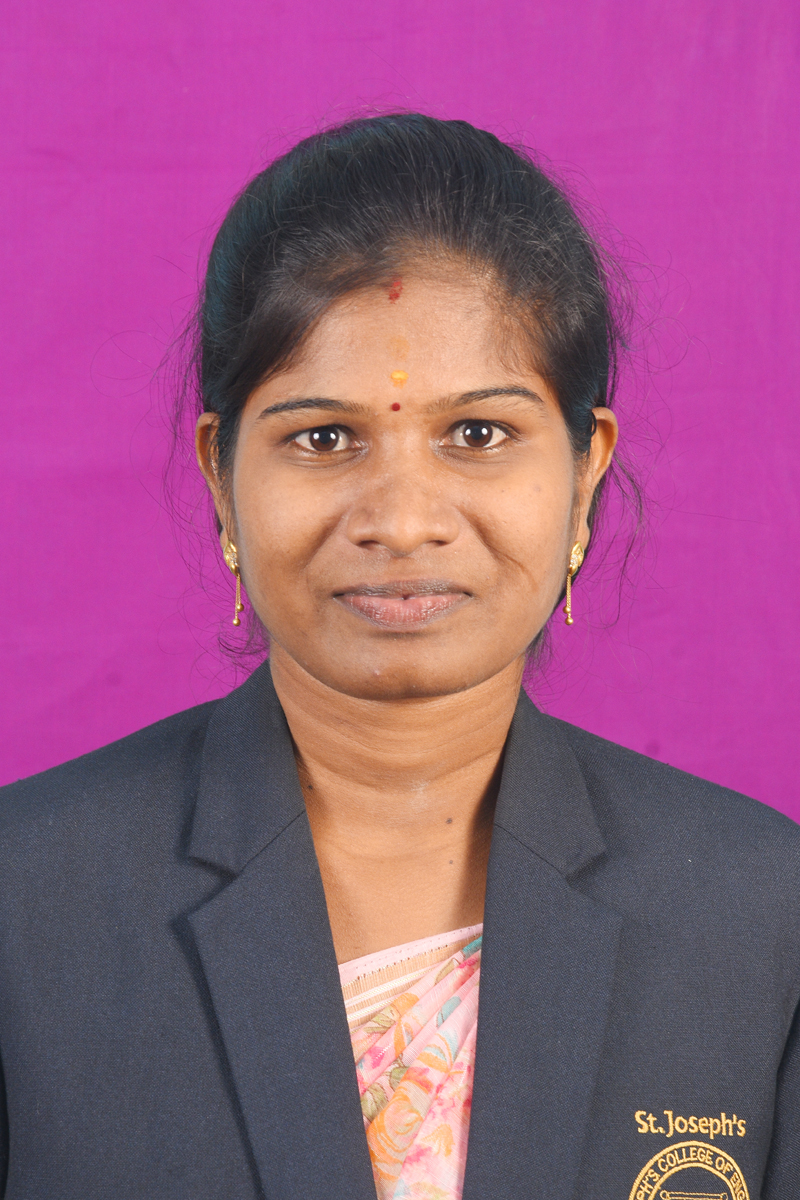
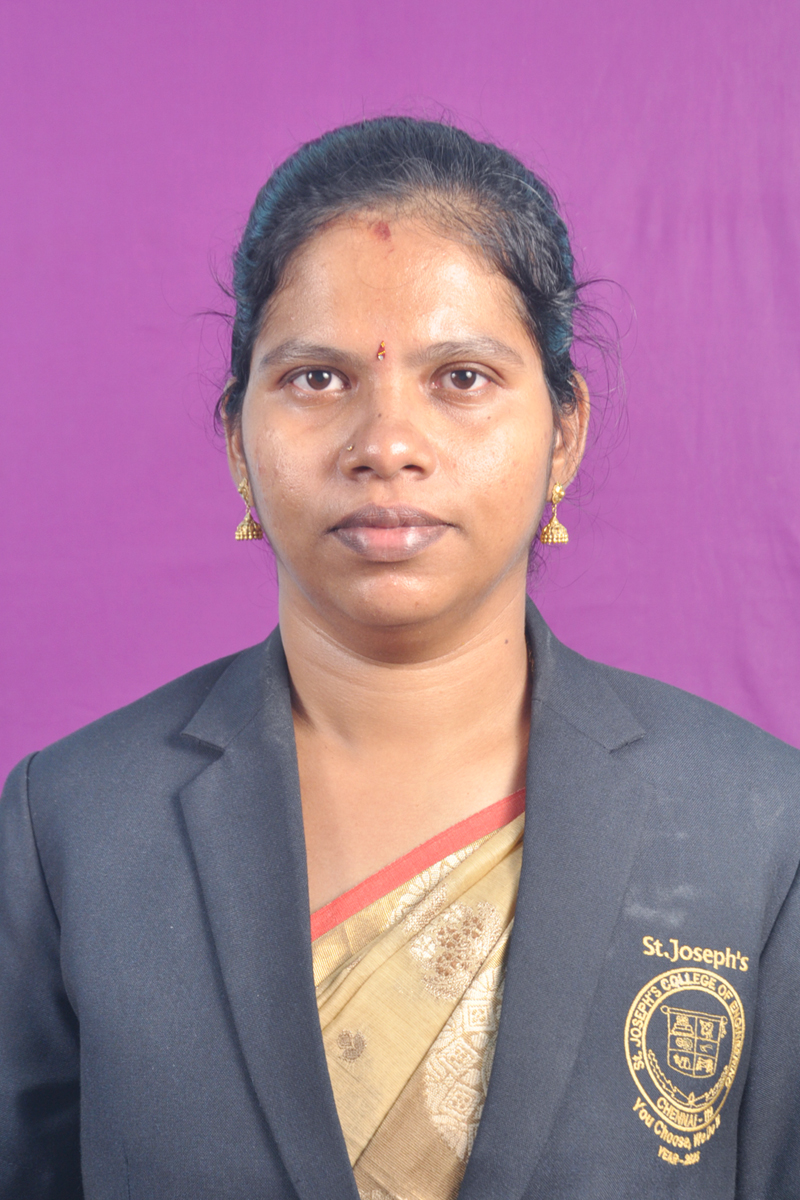
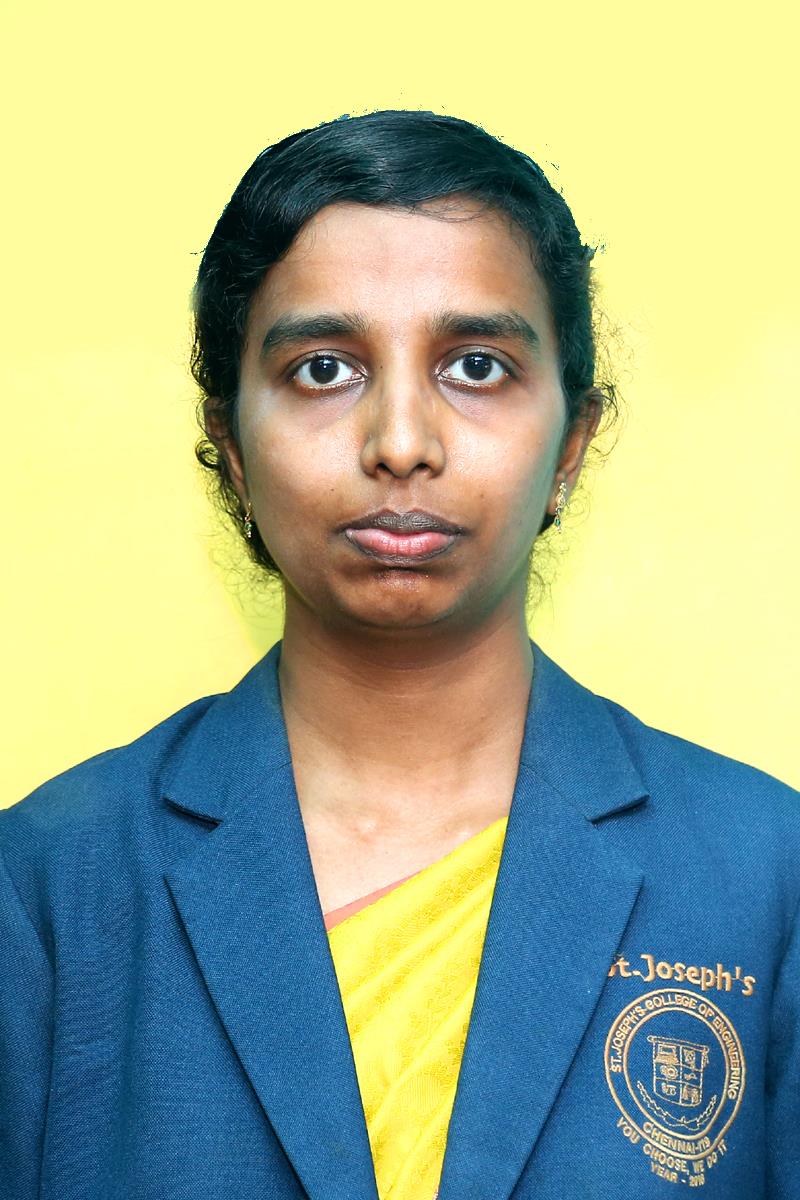
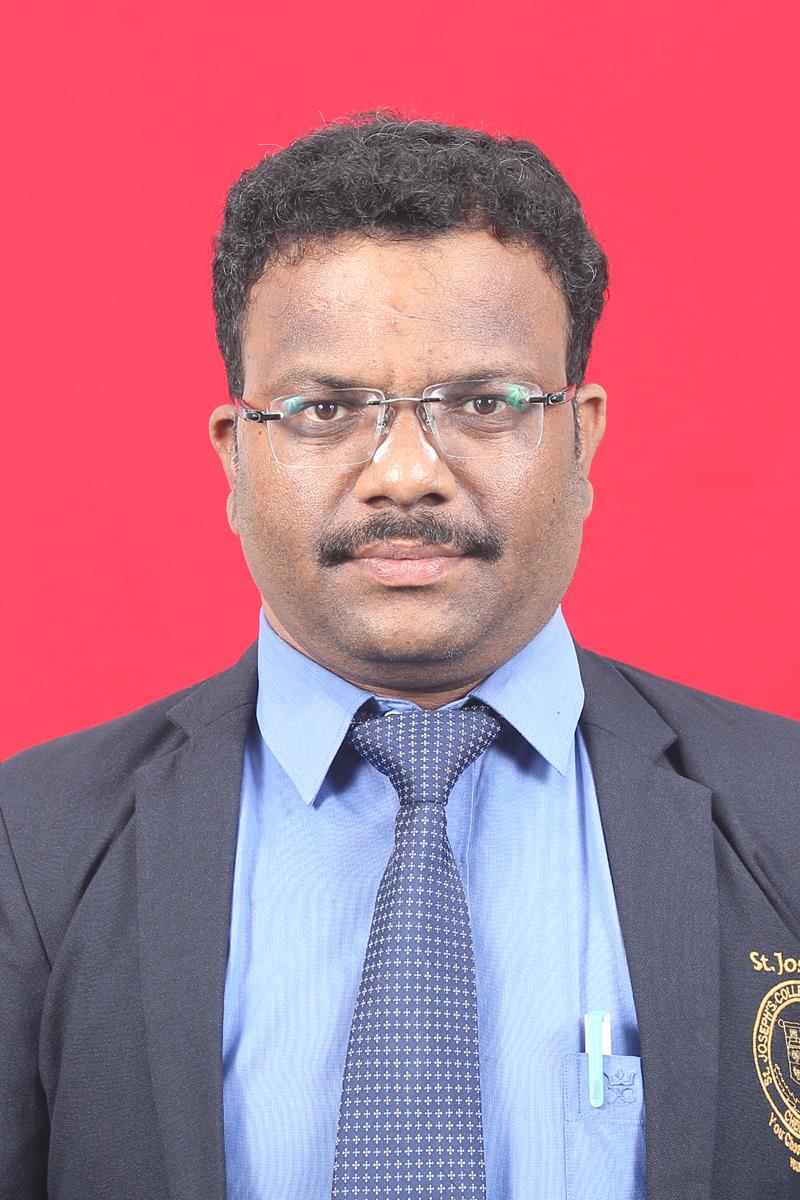
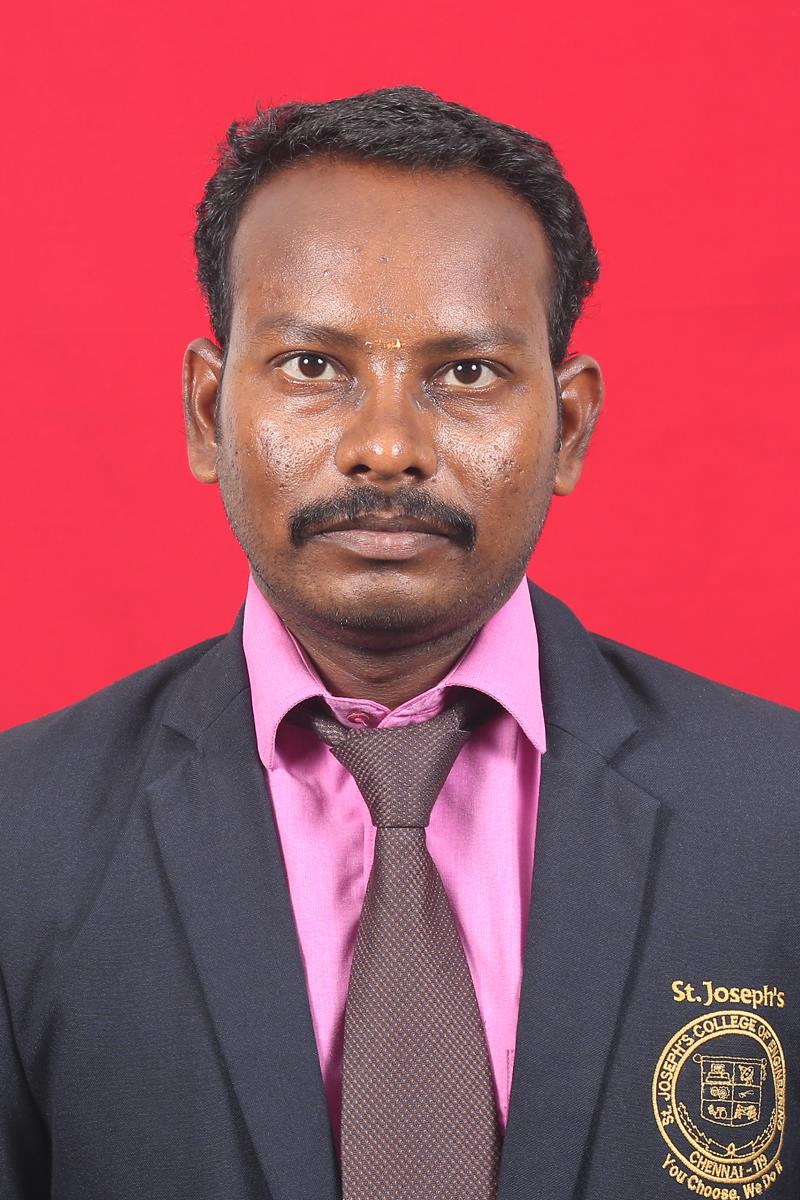
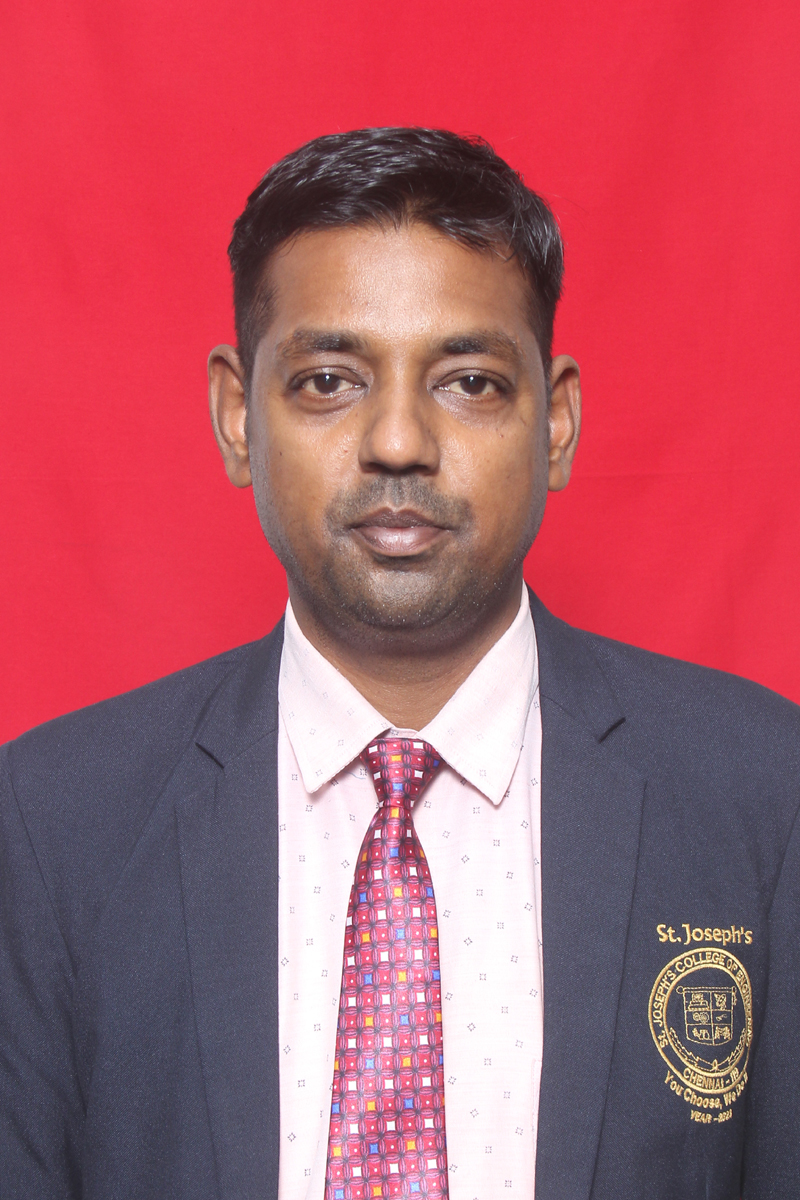
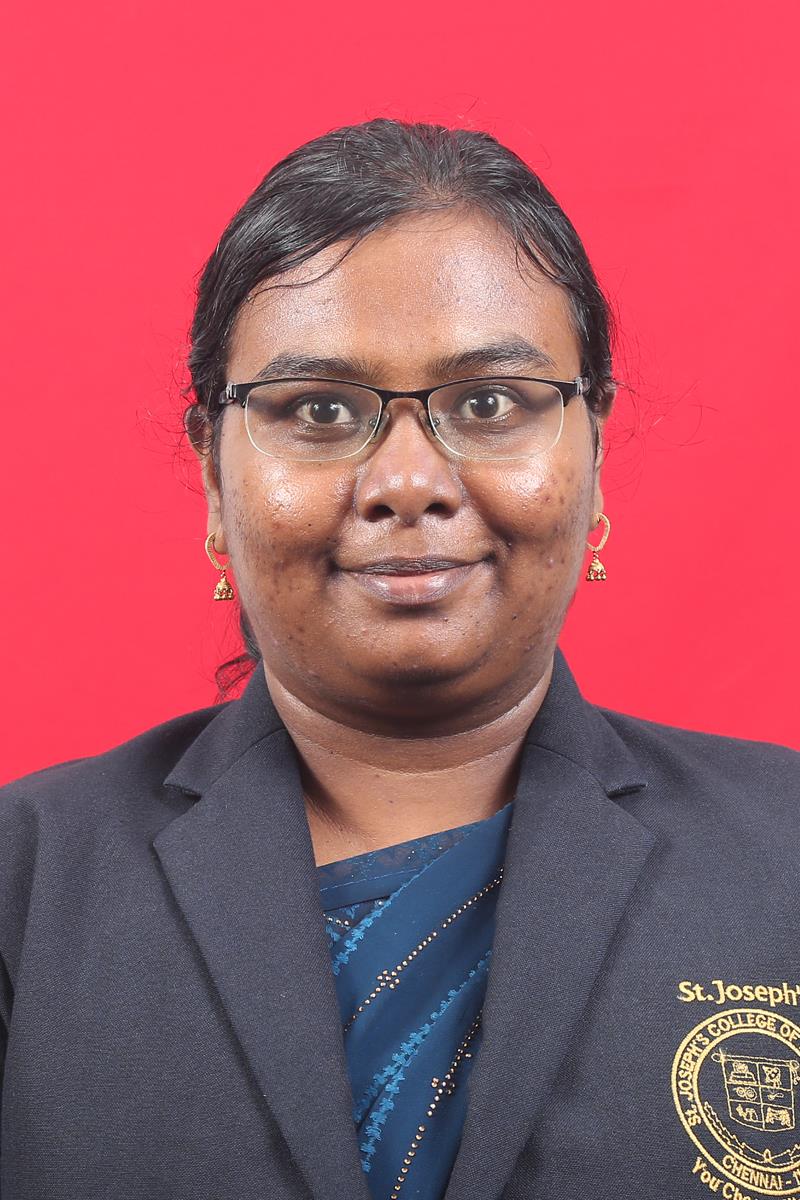
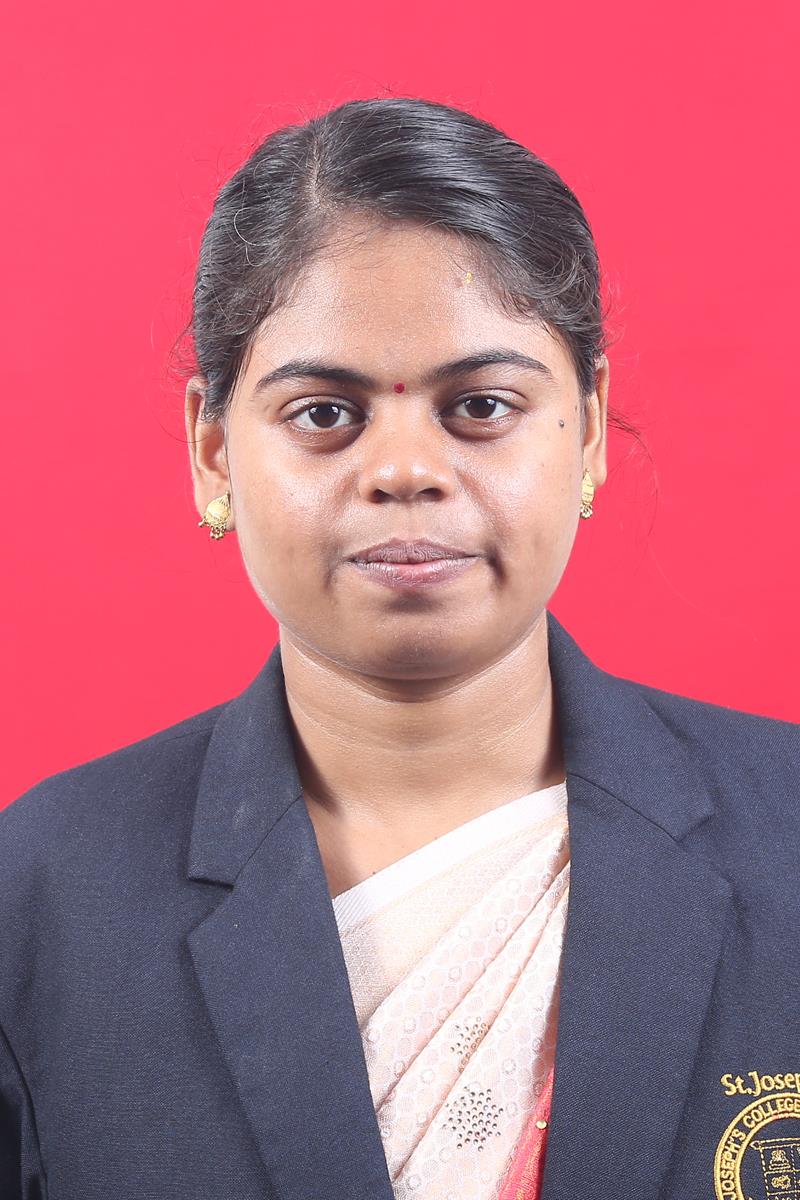
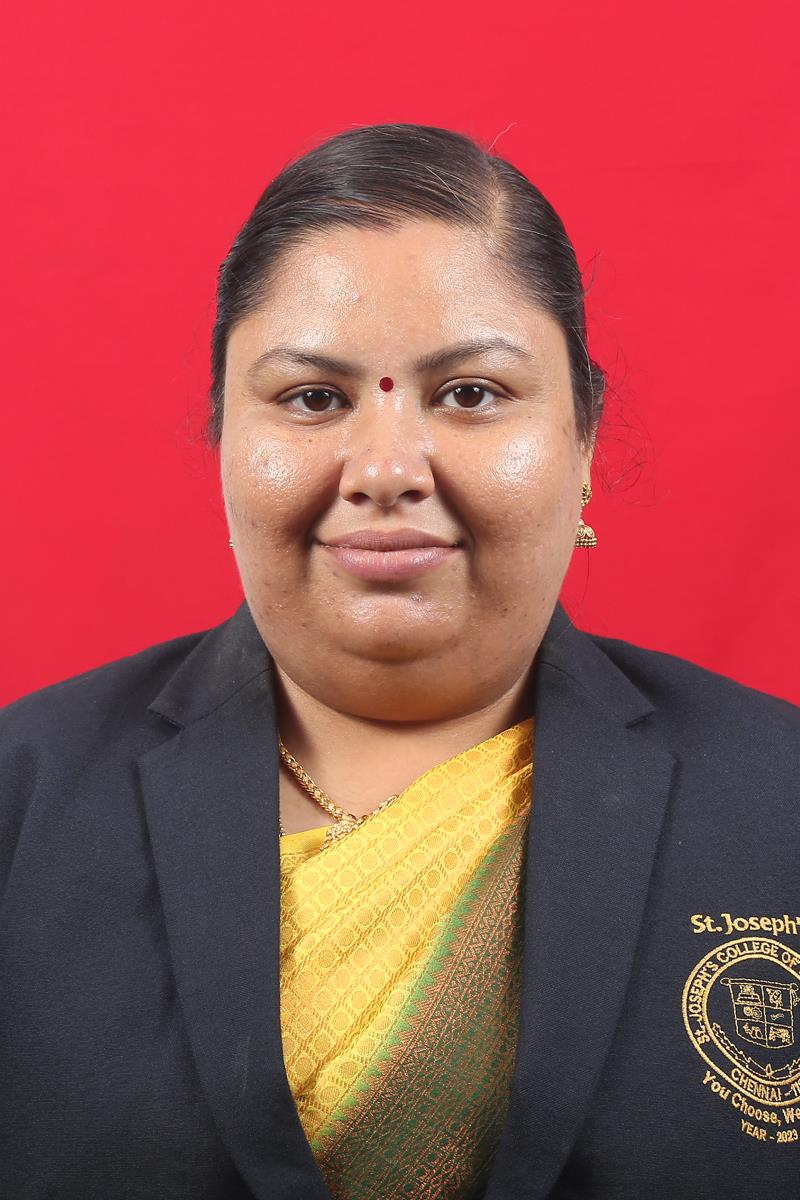
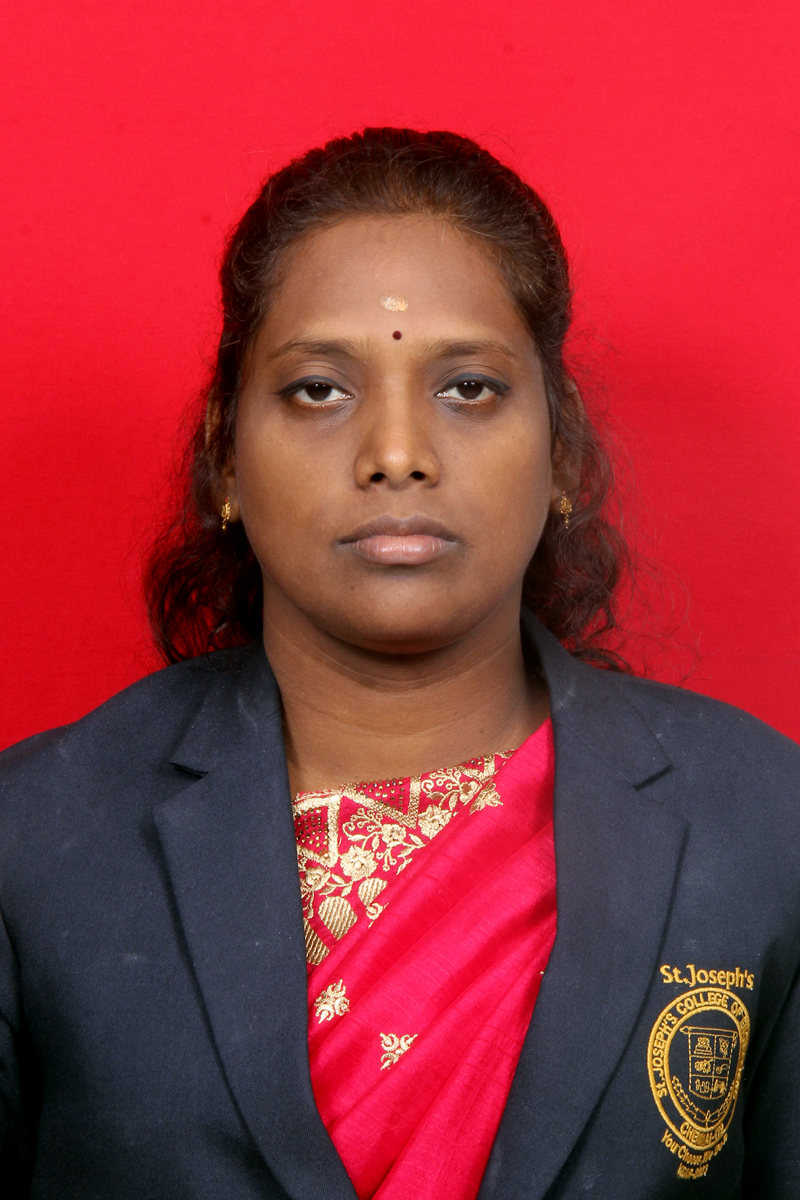
Home
-
There are 40 well qualified and dedicated faculties with 14 of them holding Doctoral degree from various reputed Universities adds highlight to our department. Our faculty members besides teaching are involved in many activities like continuing education, technical consultancy, research & development, coordinating professional bodies such as IEEE-CIS chapter etc..,
Vision
To achieve and sustain international prominence in education, research and professional skill development, by inculcating strong technological principles to meet the global demand.
Mission
-
Cognitive ability: To set a standard in education by developing the intellectual strength of students and guiding them to have a sound and updated knowledge in the emerging areas of technology.
-
Personality development: To synergise the mind set, skill, attitude and core competence of students to produce graduates of International reckoning and caliber.
-
Social Responsibility To mould students by inculcating moral and ethical values, thereby influencing a positive impact on the environment and society.
-
Career Guidance To enable students shine in their academic pursuits and attain leadership and managerial capability to meet the needs of the progressive industrial world.
-
Research development To develop a centre of Excellence in research for breeding innovative ideas.
Program Educational Objectives (PEO)
-
PEO1: Intellectual progress To ensure graduates will be proficient in utilizing the fundamental knowledge of basic sciences, mathematics and Information Technology for the applications relevant to various streams of Engineering and Technology.
-
PEO2: Skill augmentation To enrich graduates with the core competencies necessary for applying knowledge of computers and telecommunications equipment to store, retrieve, transmit, manipulate and analyze data in the context of business enterprise.
-
PEO3: Continuing education To enable graduates to think logically, pursue lifelong learning and will have the capacity to understand technical issues related to computing systems and to design optimal solutions.
-
PEO4: Nurture Technocrat To enable graduates to develop hardware and software systems by understanding the importance of social, business and environmental needs in the human context.
-
PEO5: Career development To enable graduates to gain employment in organizations and establish themselves as professionals by applying their technical skills to solve real world problems and meet the diversified needs of industry, academia and research.
Students Corner
Our institution is steadfast in its commitment to fostering talent, encouraging innovation, and preparing students to address global challenges through a range of structured initiatives and programs.
Industrial Visit
The college organizes industrial visits to reputed organizations and industries, providing students with hands-on exposure to professional environments. These visits bridge the gap between theoretical knowledge and practical application, enabling students to gain valuable insights into industry practices and emerging technologies.
National-Level Symposium
Our students take pride in organizing and participating in National-Level Symposium that foster intellectual engagement and technical excellence. These events serve as a platform for collaboration, competition, and the exchange of knowledge, thereby nurturing leadership and innovation among participants.
Sports Activities
The college places significant emphasis on sports and physical well-being, organizing regular training sessions and tournaments. Students have represented the institution in various sports such as cricket, football, basketball, badminton, and athletics, achieving distinctions at university, state, and national levels.
Higher Studies
The institution provides robust support for students aspiring to pursue higher education at globally renowned universities. Comprehensive guidance for competitive examinations such as GRE, TOEFL, GATE, and CAT is offered. Faculty mentors provide counseling and assistance to ensure that students are well-prepared to achieve their academic and professional goals
Industrial Visit
An Industrial visit gives the student knowledge and exposure needed to grasp certain engineering techniques and terminologies for easier understanding. An in-plant training increases a student's. opportunity of get a job after graduation. An in-plant training adds more experience to the portfolio of the student
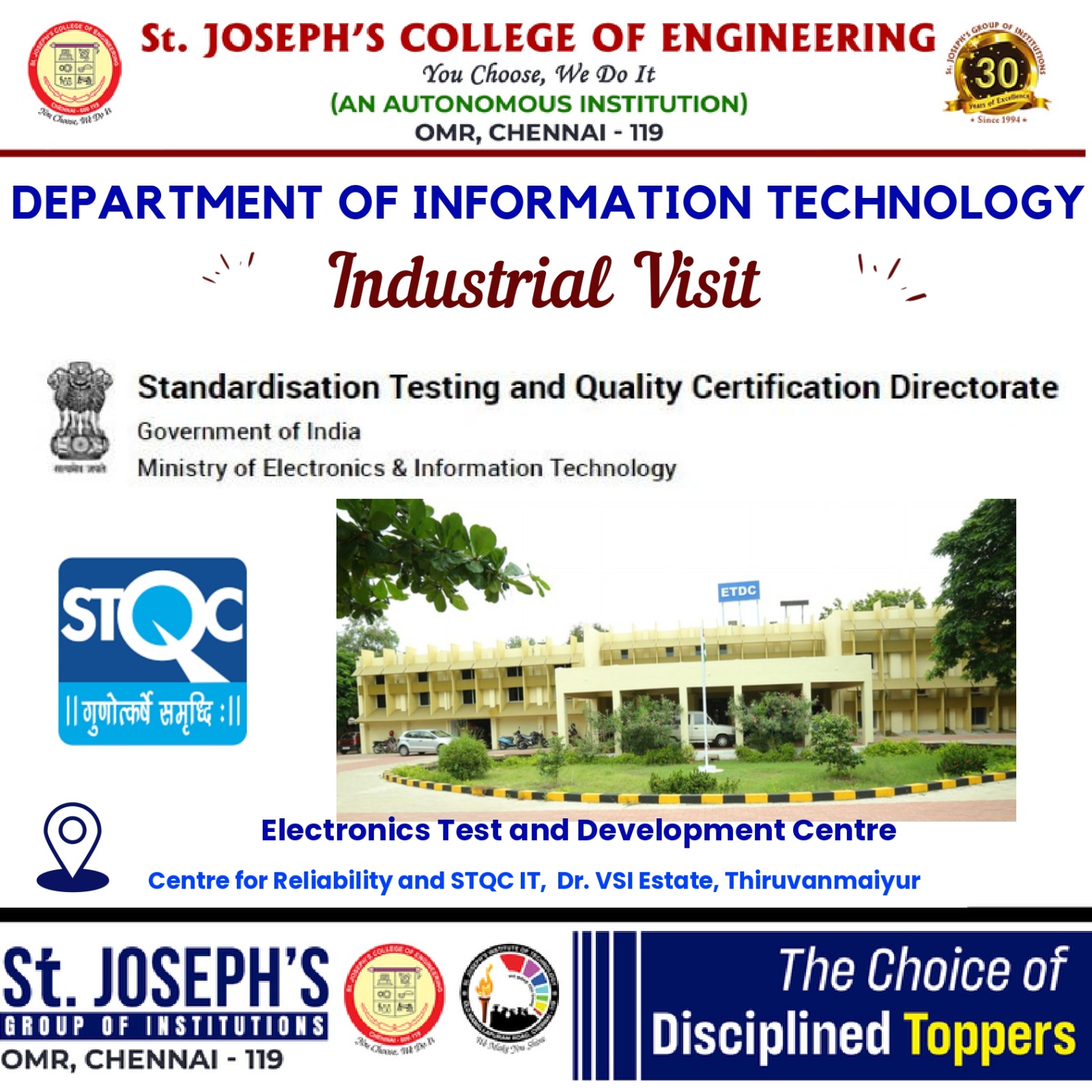
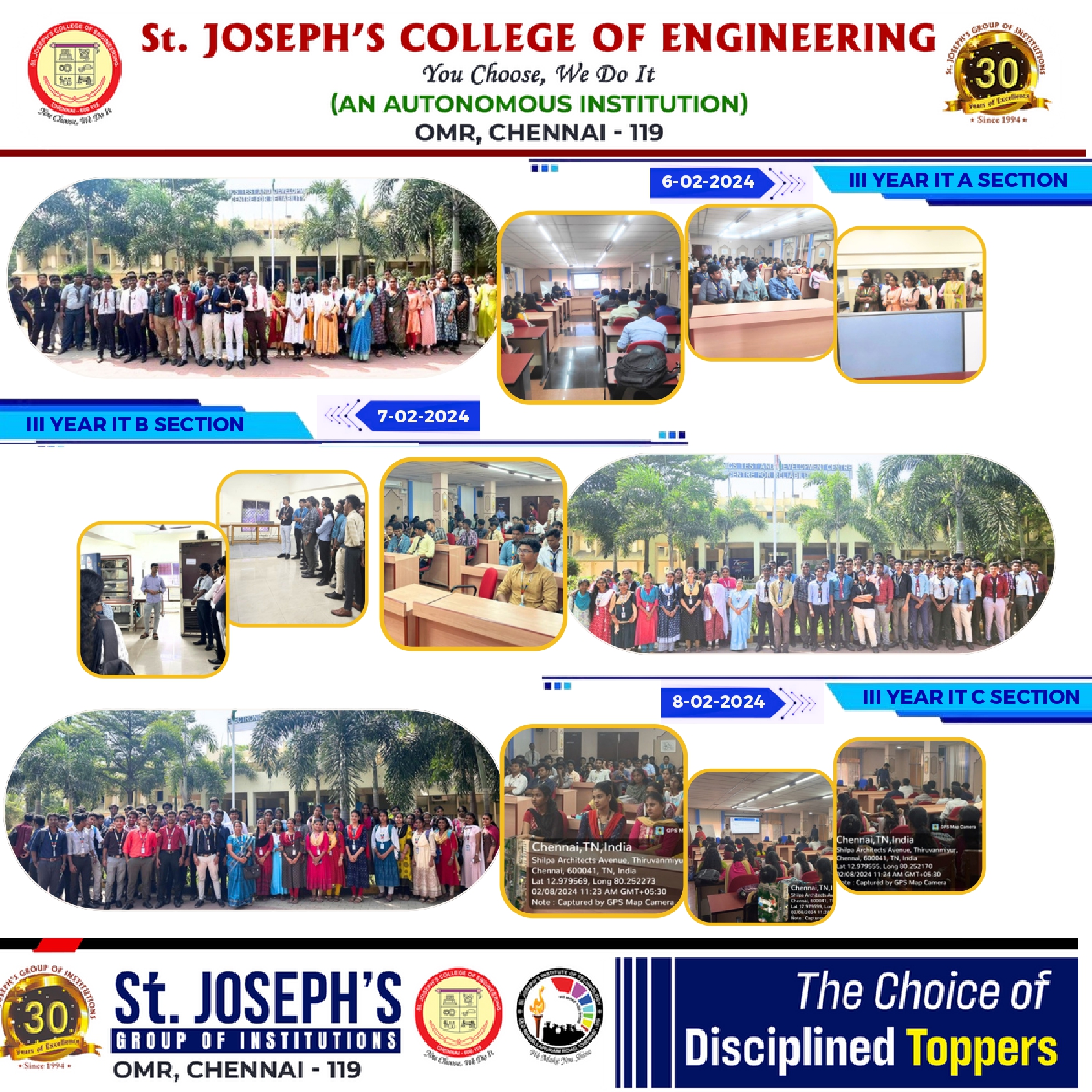
| S.No | Place | Date |
|---|---|---|
| 1 | First Floor,Block no 17,Mahatma Gandhi Road,Above SBI Bank, Shastri Nagar, Adyar, Chennai | October 4,2024 |
| 2 | Arshiya Chambers, 40, Thanikachalam Rd,Above SMART POINT, T. Nagar, Chennai | October 4,2024 |
| 3 | 137, 1st Floor, (Above Icici Bank),Lic Colony Main Road, Velach, Chennai | October 4,2024 |
| 4 | SEED FOR SAFETY,No :5414, Dr. Ambedkar Road, Nanmangalam, Chennai | March 12,2024 |
| 5 | Electronics Test and Development Centre,Centre for Reliability and STQC IT Dr. VSI Estate, Thiruvanmaiyur | February 6,2024 |
National Level Symposium
Our students take pride in organizing and participating in National-Level Symposium that foster intellectual engagement and technical excellence. These events serve as a platform for collaboration, competition, and the exchange of knowledge, thereby nurturing leadership and innovation among participants.

TECH BUILDING CLUB
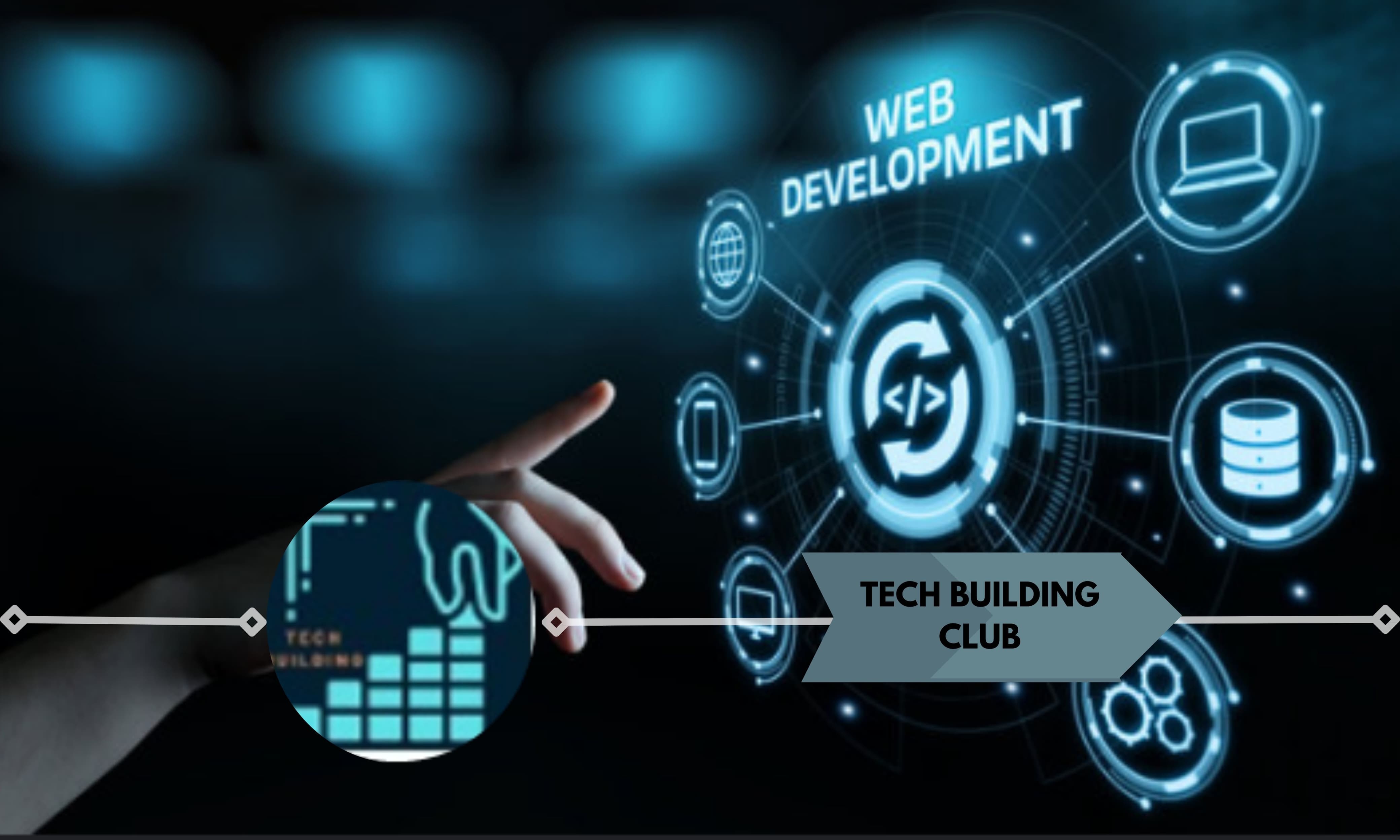
NET EDGE CLUB
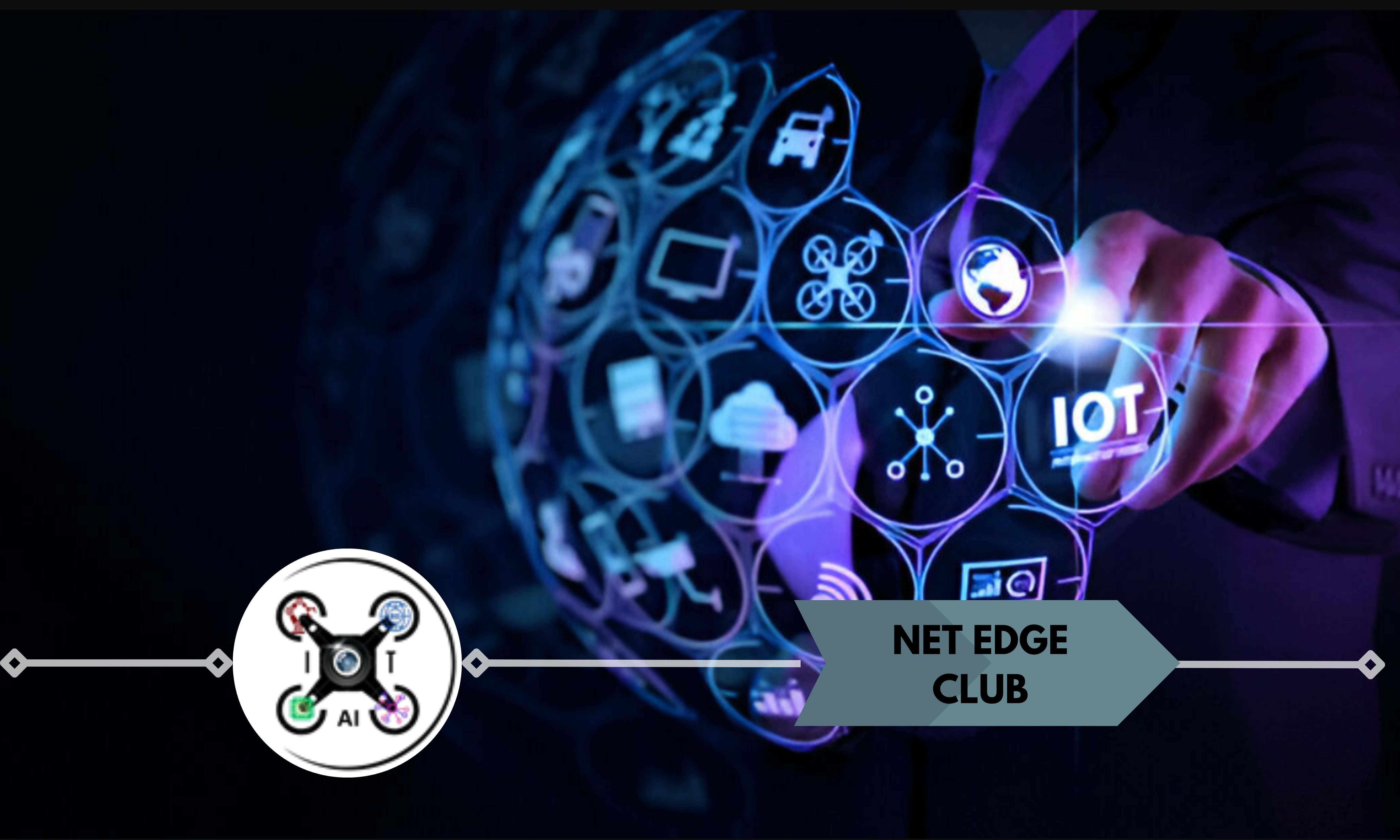
OPTIMIZED BRAIN CLUB
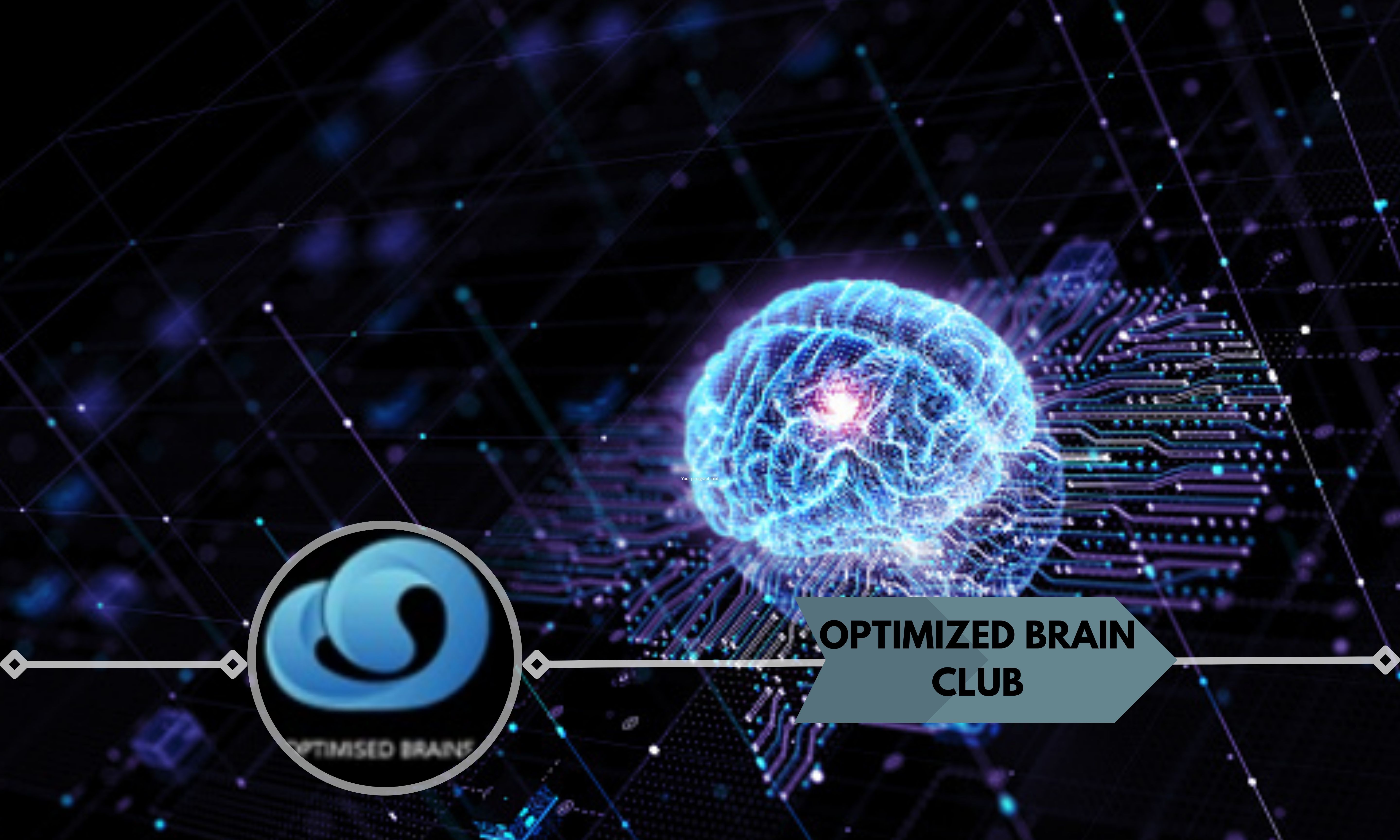
ANIMATRIX CLUB
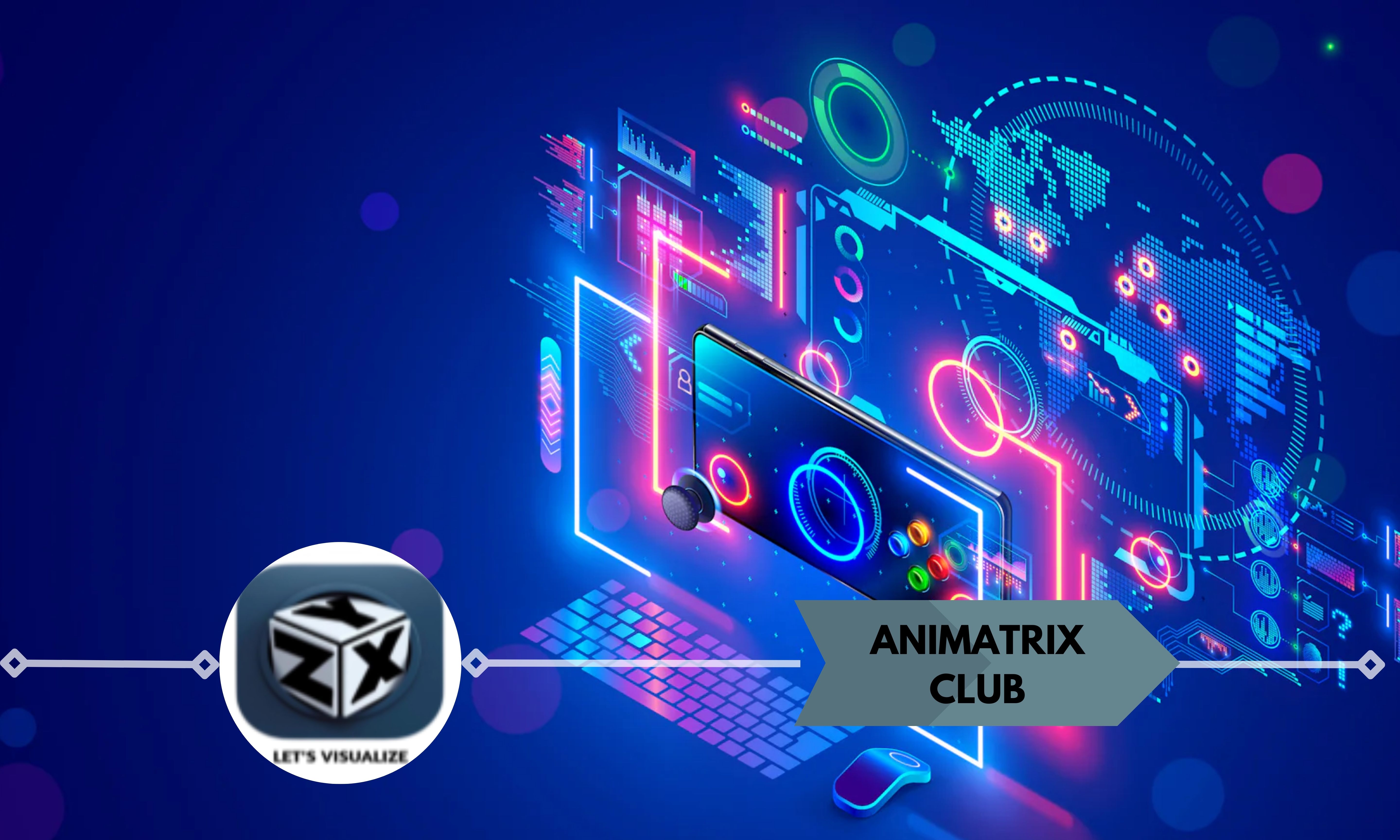
ZYBER ENCRYPT CLUB
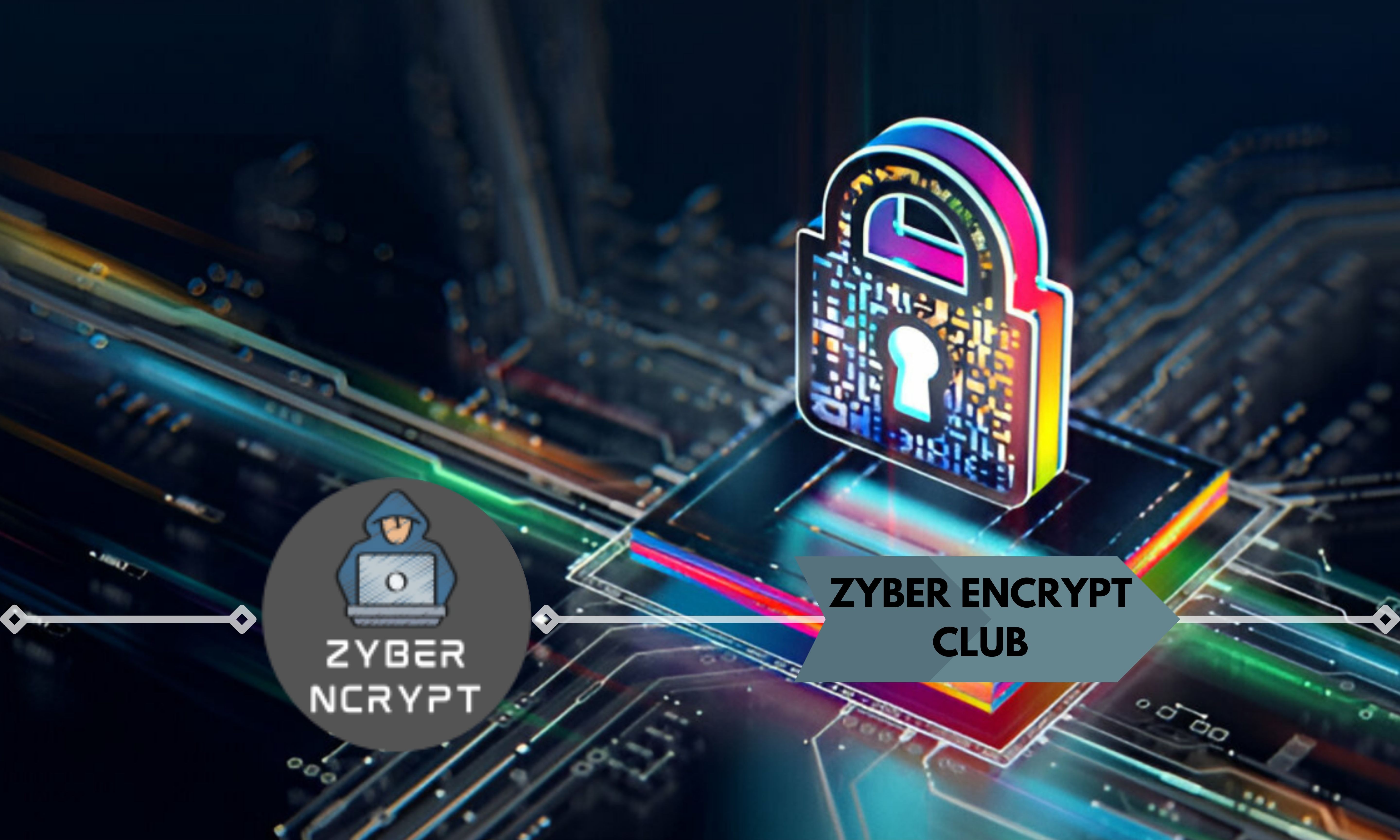
SHE IT CLUB
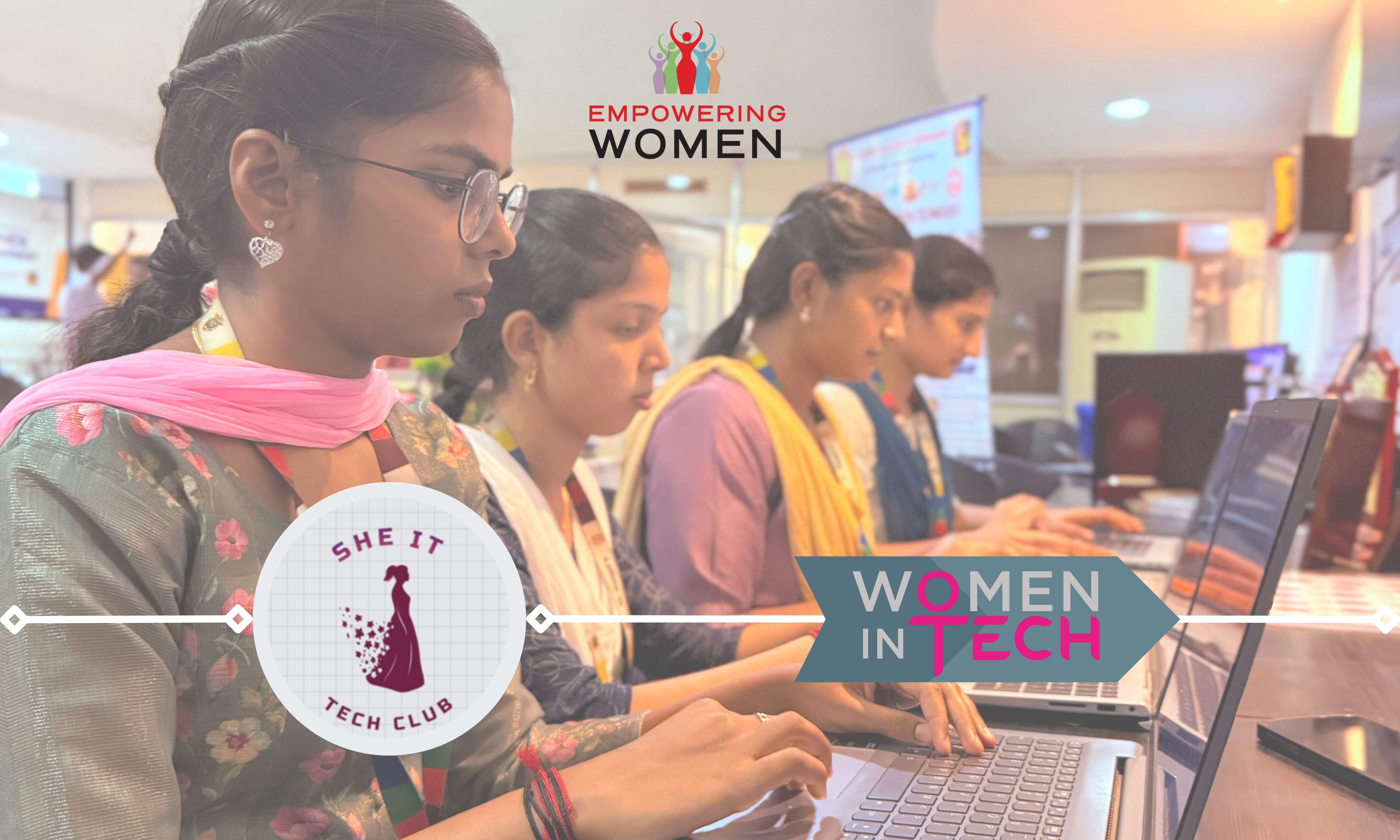
Sports


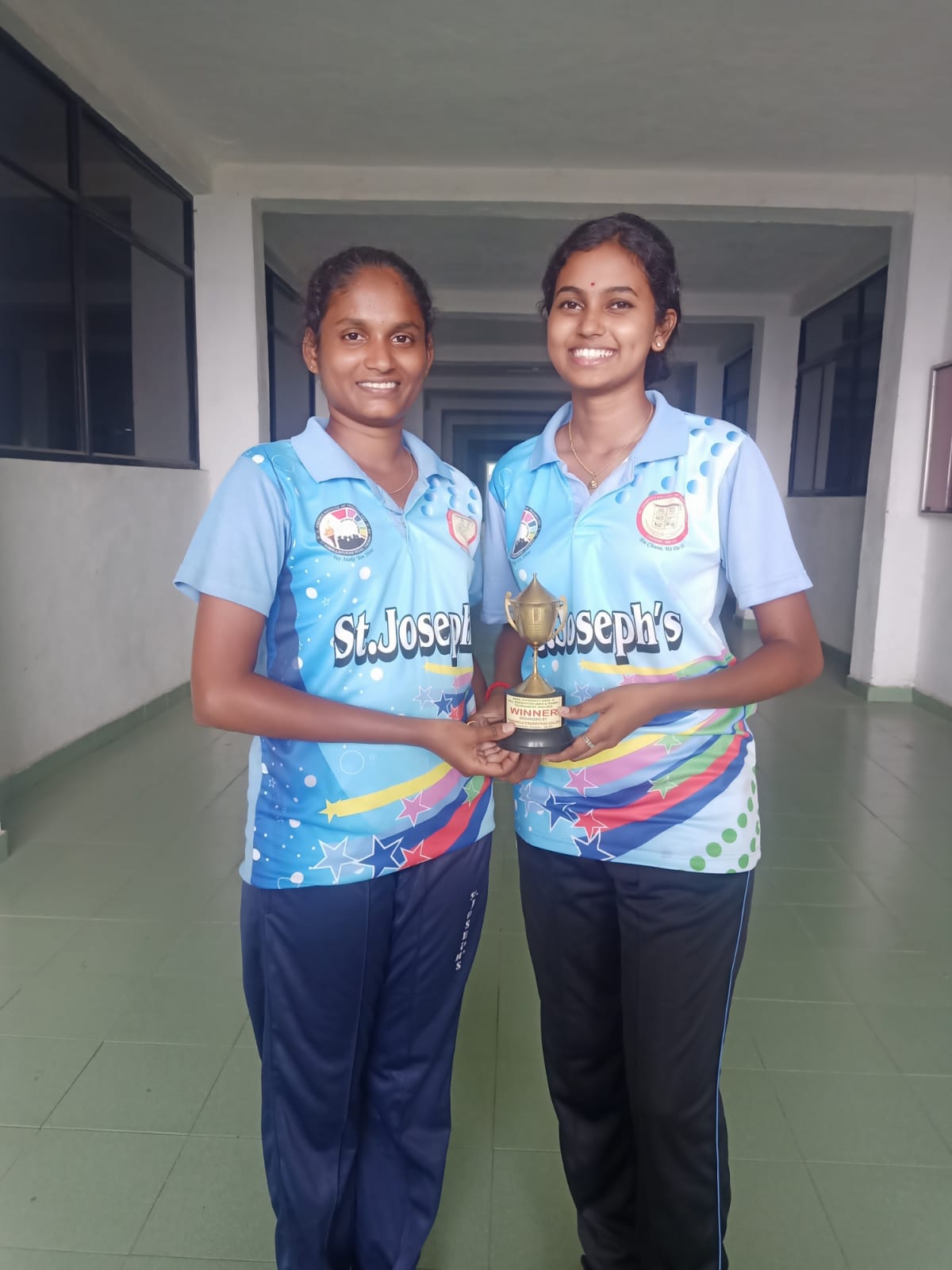

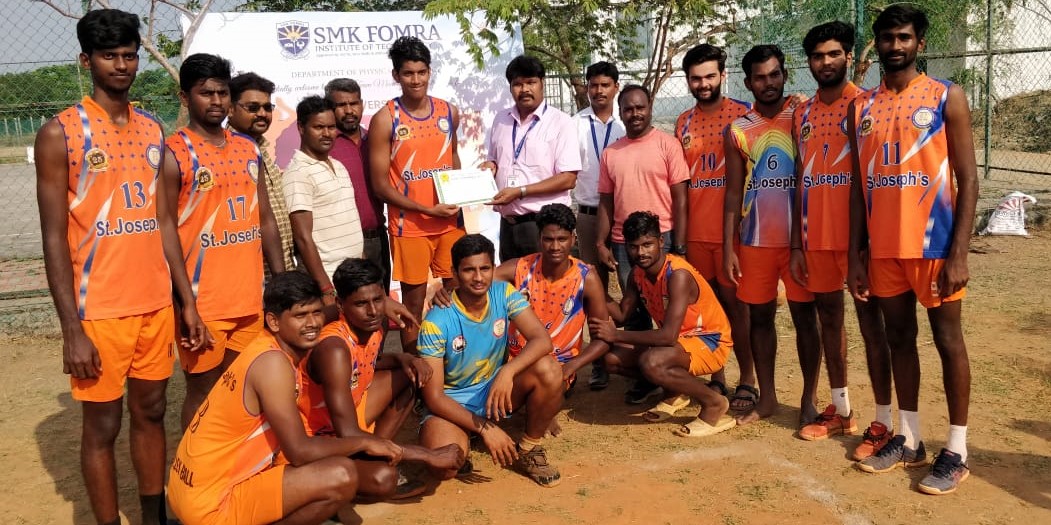







| S.No | Name | Year | Game | Date | Achievement |
|---|---|---|---|---|---|
| 1 | Naveen KS | II | Chess | 24/12/24 - 27/12/24 | 23rd in Open Section and received cash award of 2500/- |
| 2 | Naveen KS | II | Chess | 22/12/24 | 21st in Open Section and received cash award of 7000/- |
| 3 | Dhamini | II | Long Jump | 30/11/24 to 1/12/24 | Bronze Medal |
Higher studies
| S.No | Year | No.of Students |
|---|---|---|
| 1 | 2023-2024 | 10 |
| 2 | 2022-2023 | 10 |
| 3 | 2021-2022 | 03 |
| 4 | 2020-2021 | 08 |
| 1 | 2023-2024 | 10 |
| 6 | 2018-2019 | 04 |
Academics
The B.Tech Information Technology curriculum focuses on providing students with a solid foundation in basic sciences, mathematics, and IT applications. It aims to develop core competencies in data management, analysis, and logical thinking, preparing students for lifelong learning and careers as socially aware technocrats. The program emphasizes career readiness by honing problem-solving and communication skills.
Courses cover a wide range of topics, including programming, data structures, computer networks, artificial intelligence, cloud computing, and machine learning. Laboratory work allows students to apply theoretical knowledge using tools like Python, Java, and databases. The curriculum also offers professional electives, enabling students to specialize in areas such as optimization techniques.
Ethics and human values are integrated throughout the program, highlighting the importance of responsible and safe practices in engineering. Continuous assessments, including projects and exams, ensure students gain a comprehensive understanding and practical skills. This curriculum prepares students to meet both technical challenges and ethical responsibilities in the IT industry.
Syllabus
Newsletter
Laboratory
.jpeg)
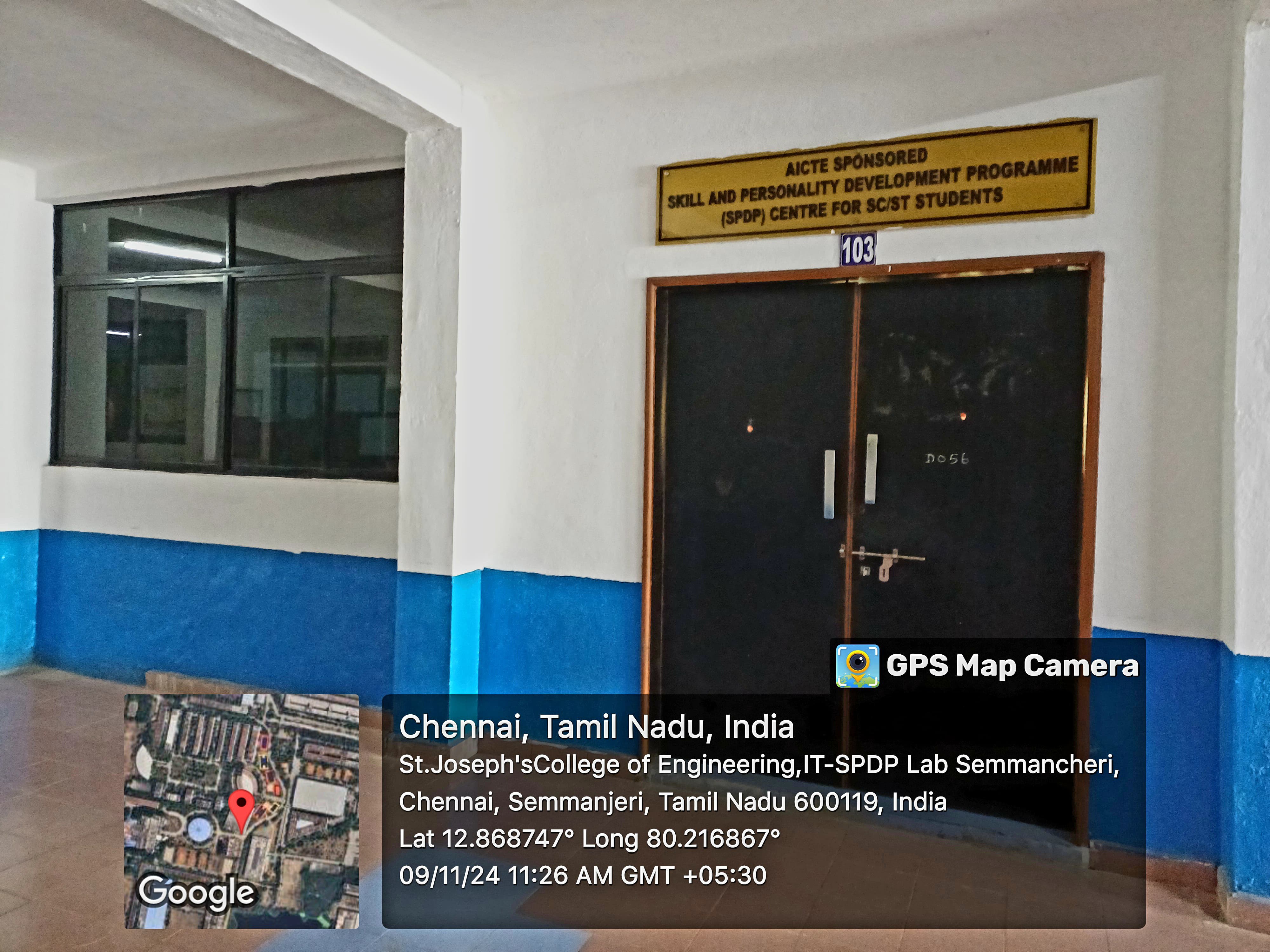
.jpeg)
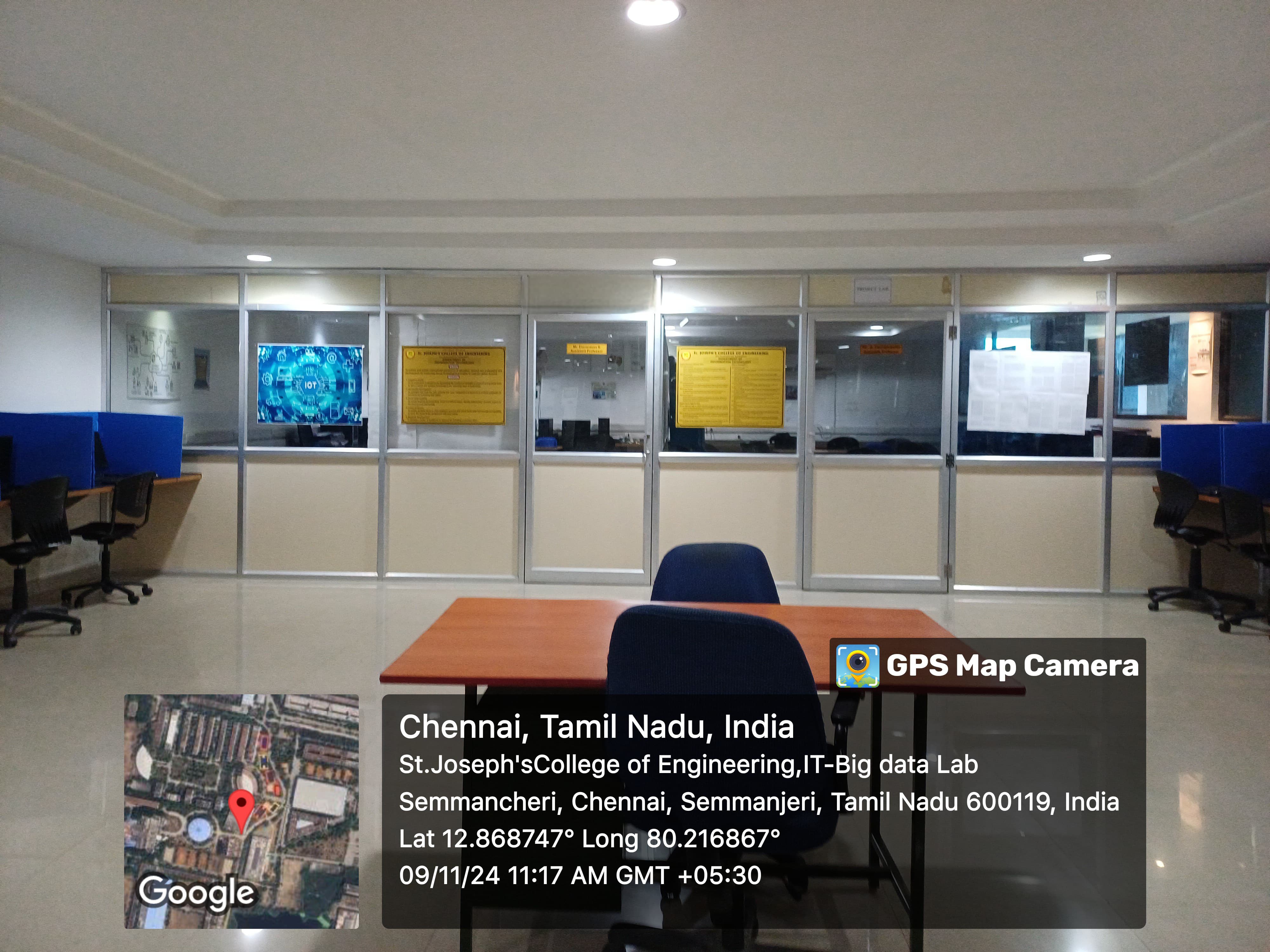
.jpeg)
.jpeg)
.jpeg)
.jpeg)
.jpeg)
Research
Staff Patents
Our dedicated faculty members have contributed significantly to innovation and research by securing patents in various domains. These patents highlight the pioneering efforts of our staff to advance knowledge, develop novel solutions, and address real-world challenges through cutting-edge technology and methodologies.
Staff Publications
The faculty members of our institution have published numerous research papers in reputed national and international journals. Their contributions span diverse fields and underscore their commitment to academic excellence, innovation, and the dissemination of knowledge.
Funded Projects
The institution has been the recipient of grants and sponsorships for various *research and development projects* from prestigious funding agencies. These projects emphasize collaborative efforts to address societal and technological challenges while fostering innovation and practical solutions.
MoUs(Memorandums of Understanding)
We collaborate with leading organizations through *MoUs*, enabling resource sharing, joint research, internships, and training programs.
Supervisor Details
Our experienced research supervisors mentor students across diverse domains, ensuring exceptional guidance for their academic and research success.
Staff Patents
Staff Publications
Funded Projects
Mou
Collaborating Agencies
- Paypal with ICT Academy
- ICT Academy Member
- Oracle Academy Membership
- Hebesec Technologies
Supervisor Details
DETAILS OF THE SUPERVISOR
| Reference Number | Name | Department | Research Area |
|---|---|---|---|
| 3540026 | Heltin Genitha C | Department of Information Technology | Satellite Image Processing, Artificial Intelligence, Machine Learning, Networks |
PHD AWARDED
| Reference Number | Name | Title of Thesis | Date of Viva |
|---|---|---|---|
| 17244997610 | Nirmala V | Automated Framework for Detection and Classification of Breast Abnormality using Breast Thermograms. | 25.07.2022 |
Alumni
Our department boasts a distinguished alumni network that spans across the globe, with graduates making significant contributions to the fields of engineering, technology, and research. Many alumni from the college are currently excelling in top positions in leading organizations , while others have pursued advanced studies and are completing their Master's programs
These alumni have become leaders in their respective industries, working with renowned companies in sectors such as software development, telecommunications, artificial intelligence, and data science. The foundation of their success can be traced back to the solid academic training, hands-on experience, and emphasis on ethical values
Moreover, a notable number of graduates have continued their academic journey, pursuing Master's and Ph.D. programs at top institutions in countries . These alumni represent the college on an international stage.
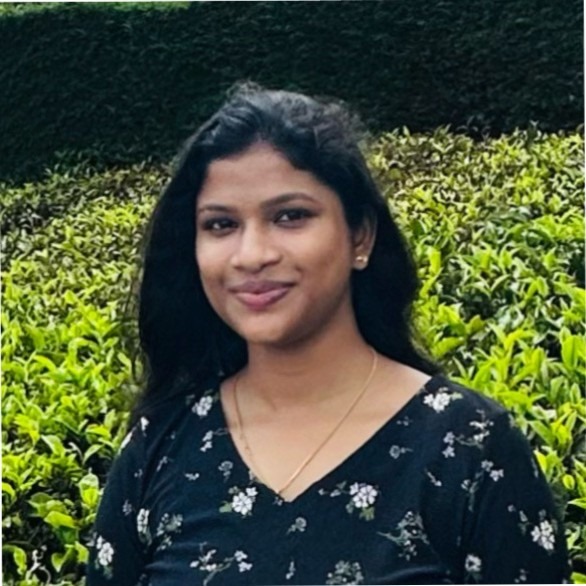
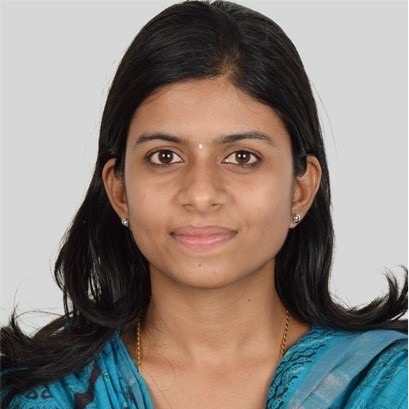
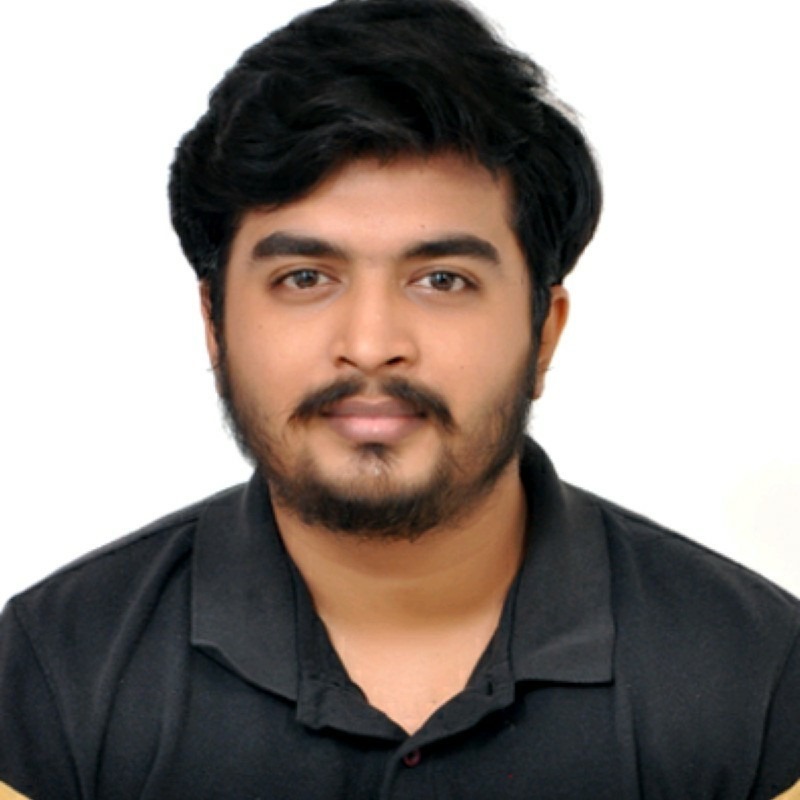
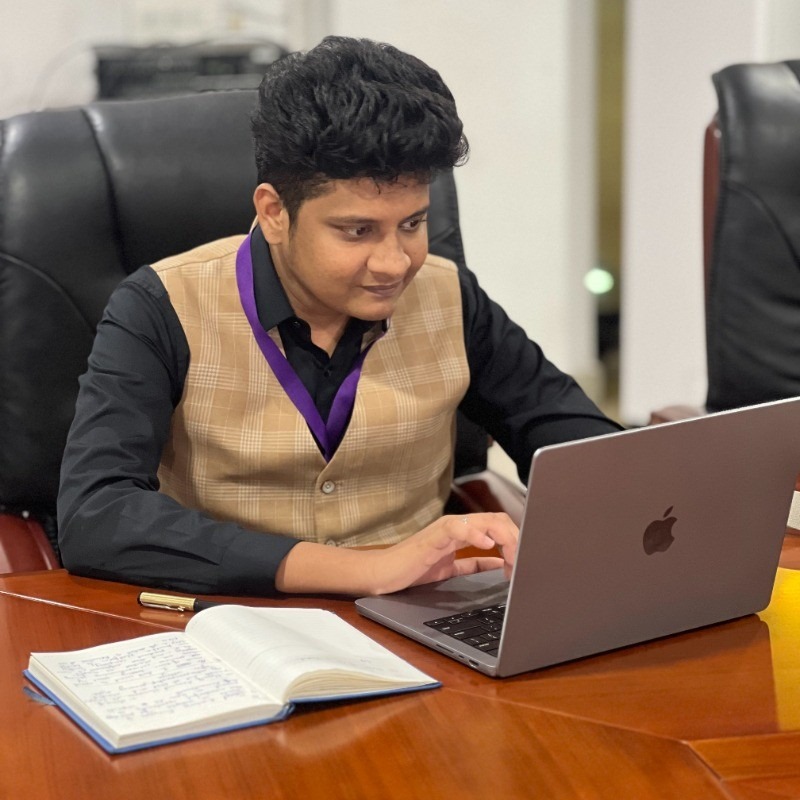
Testimonial
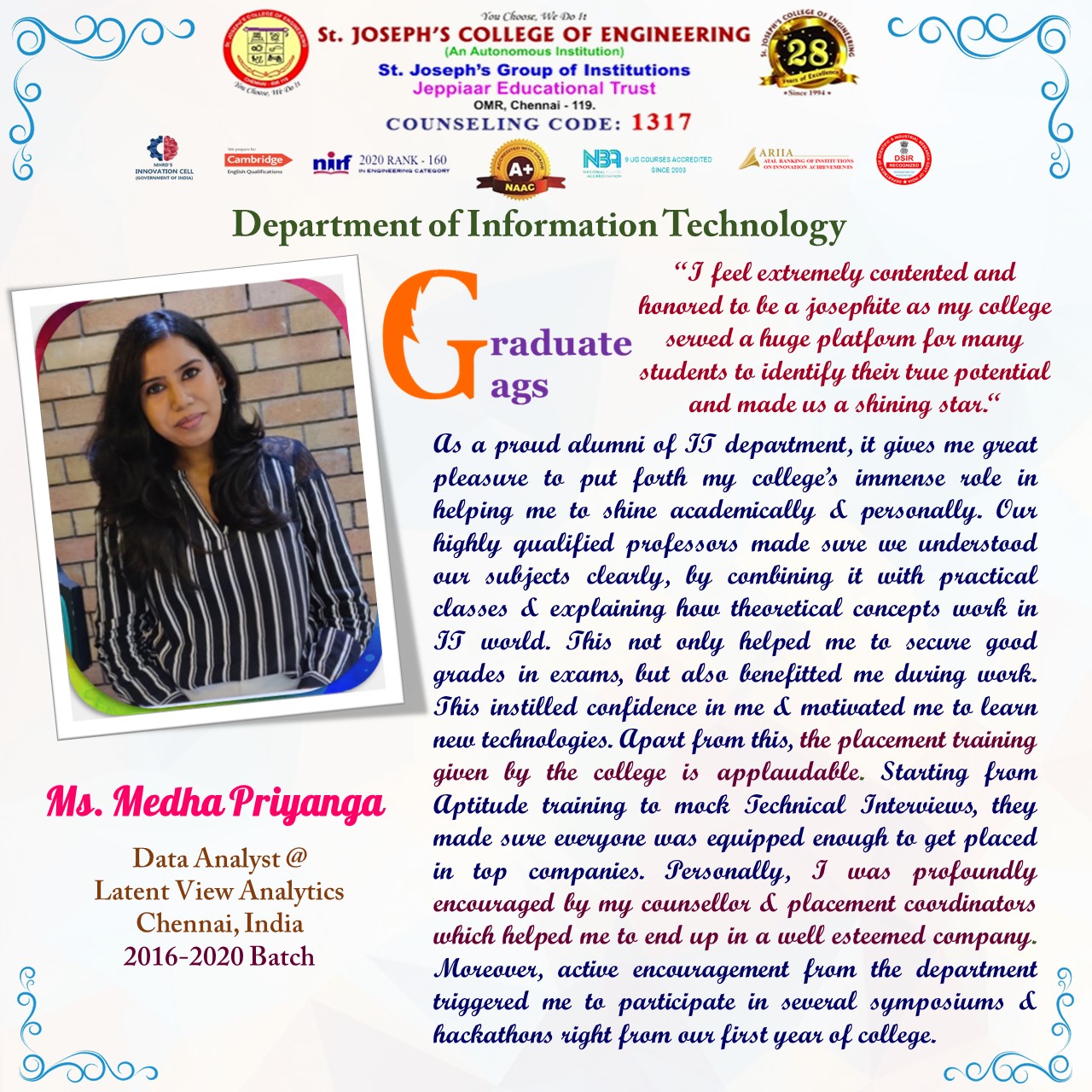
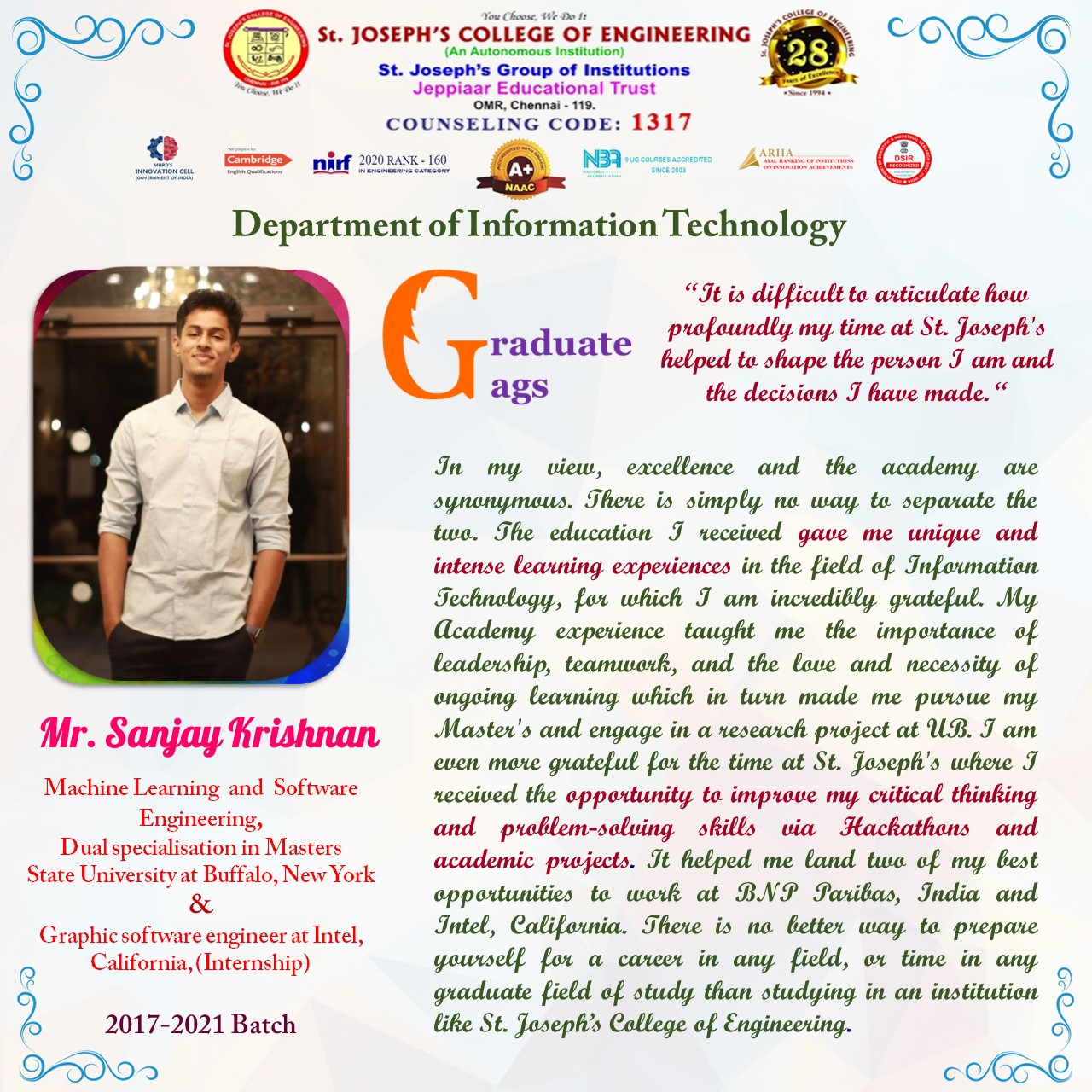
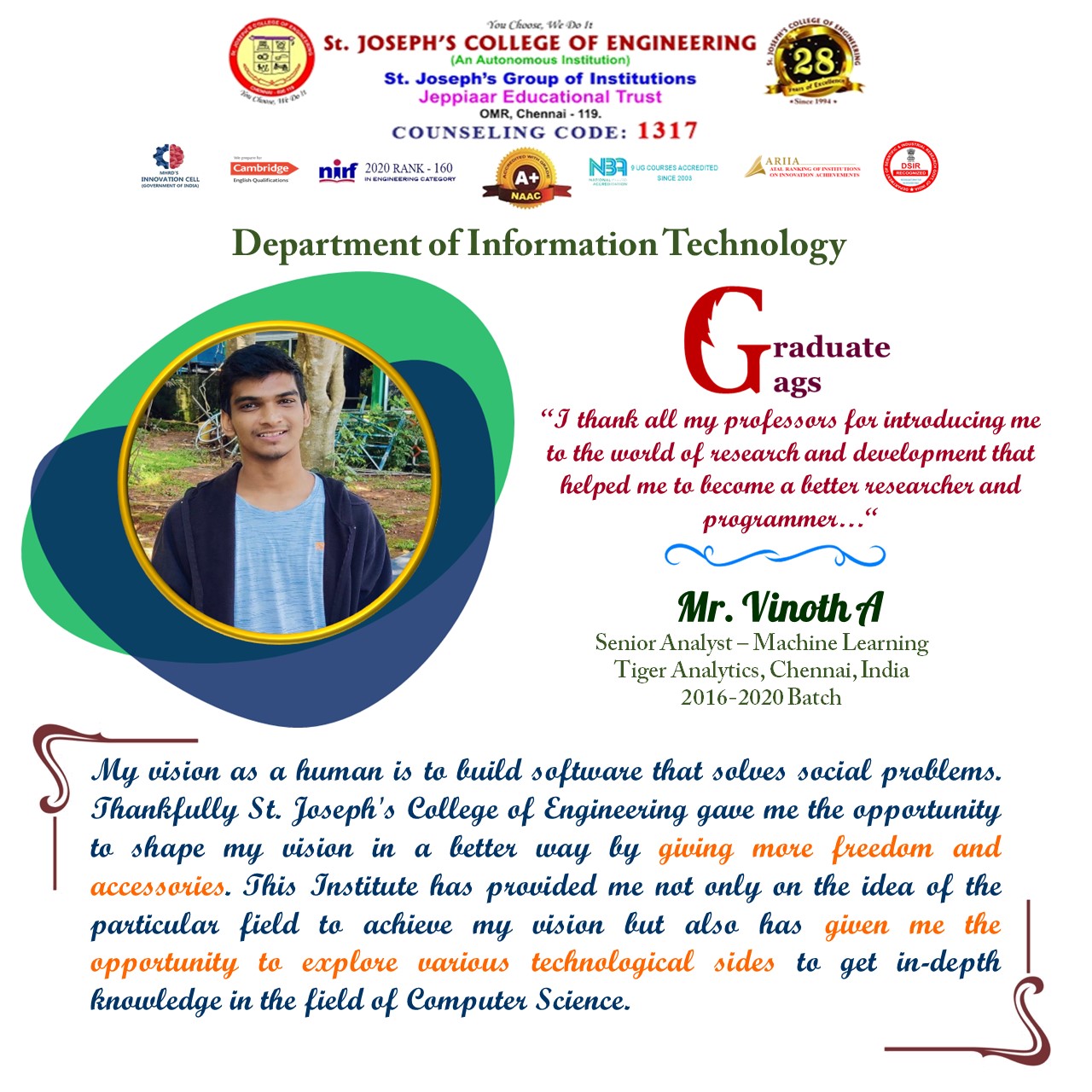
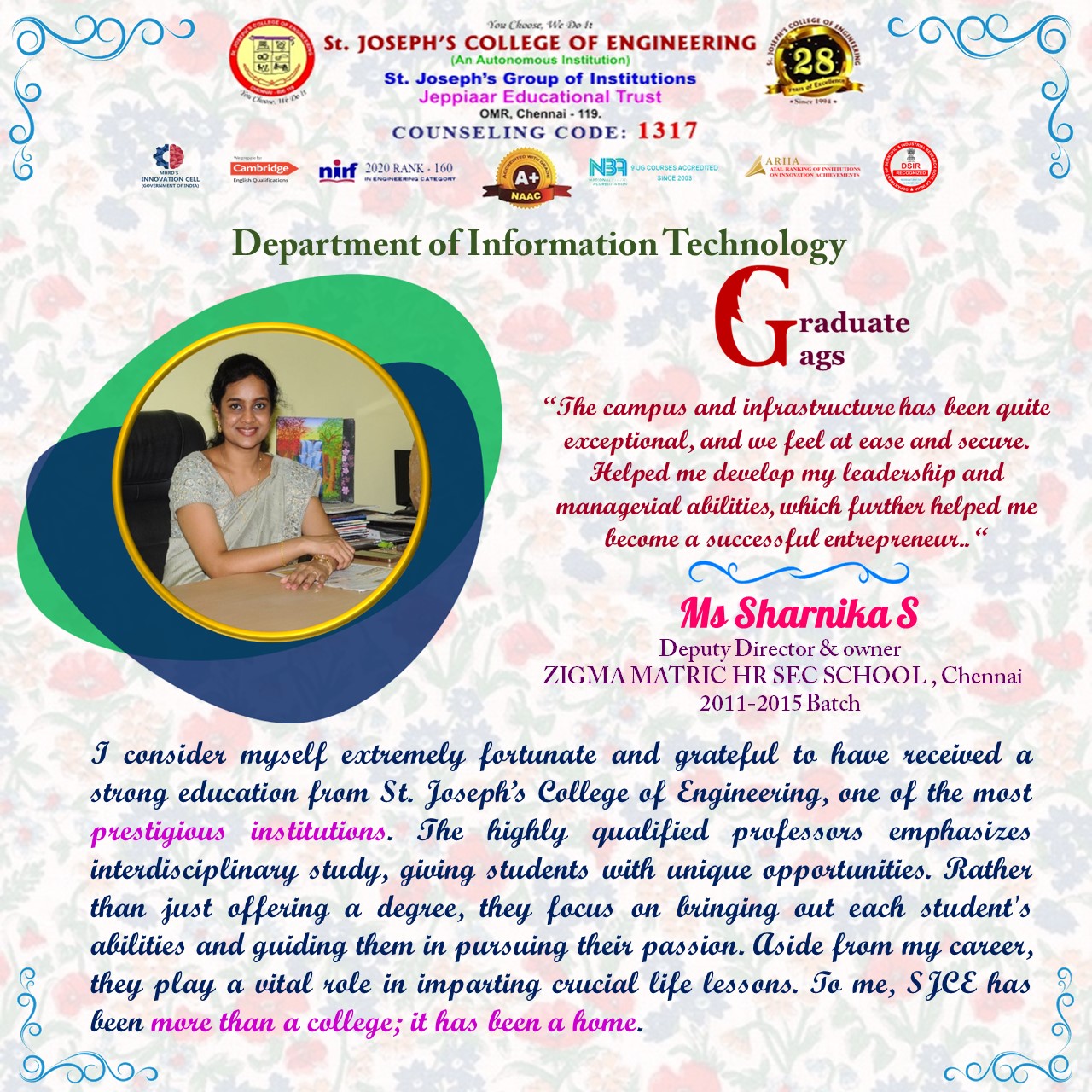
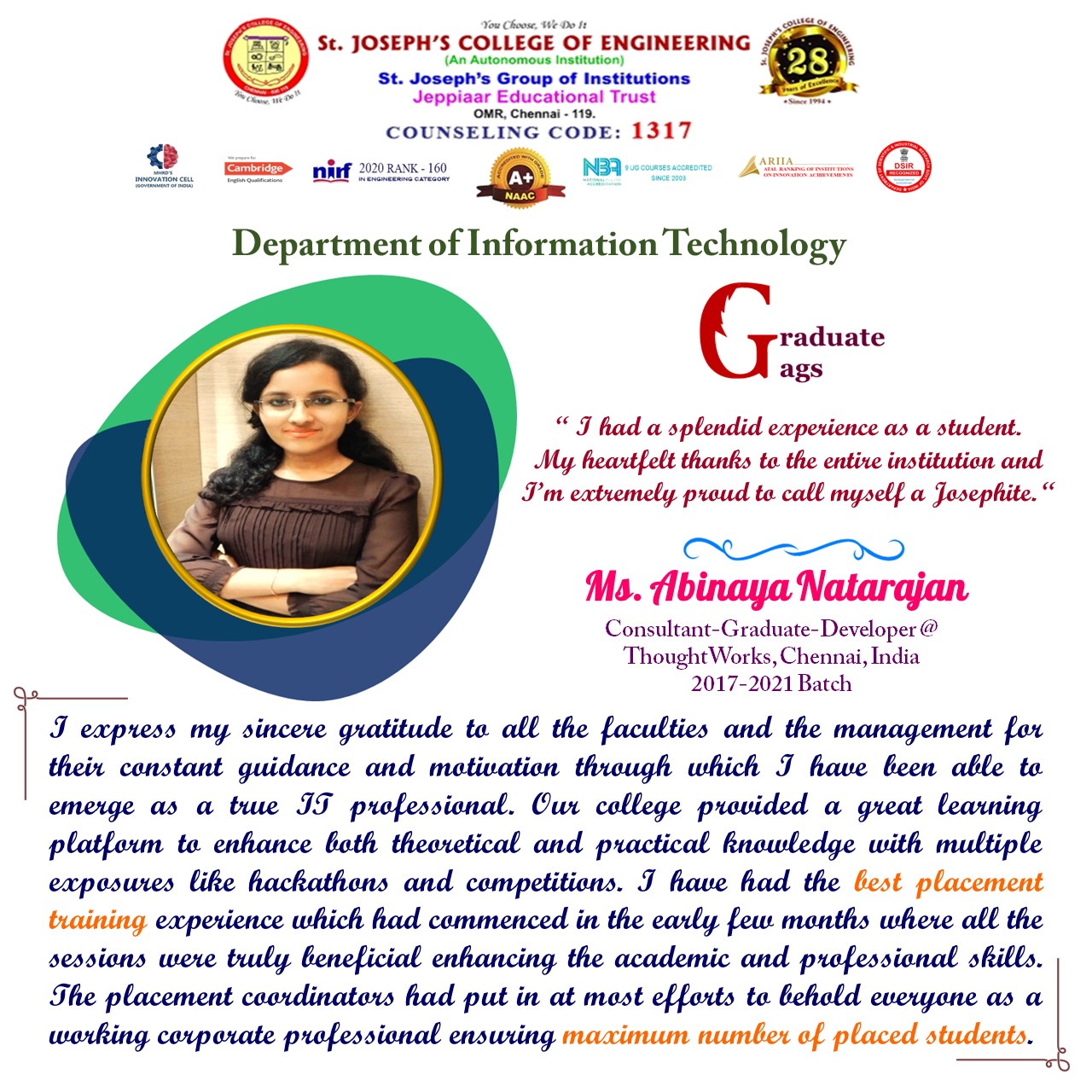
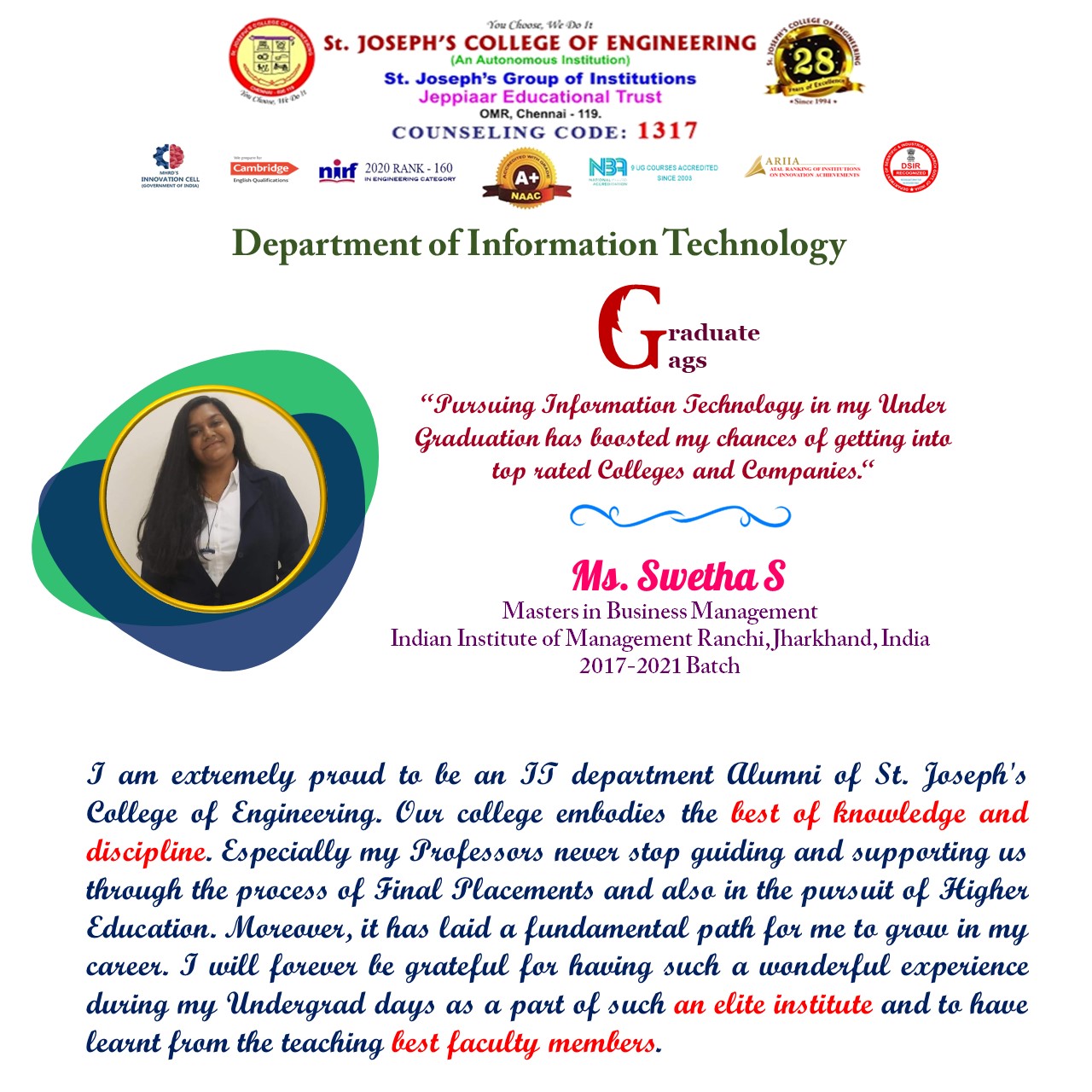
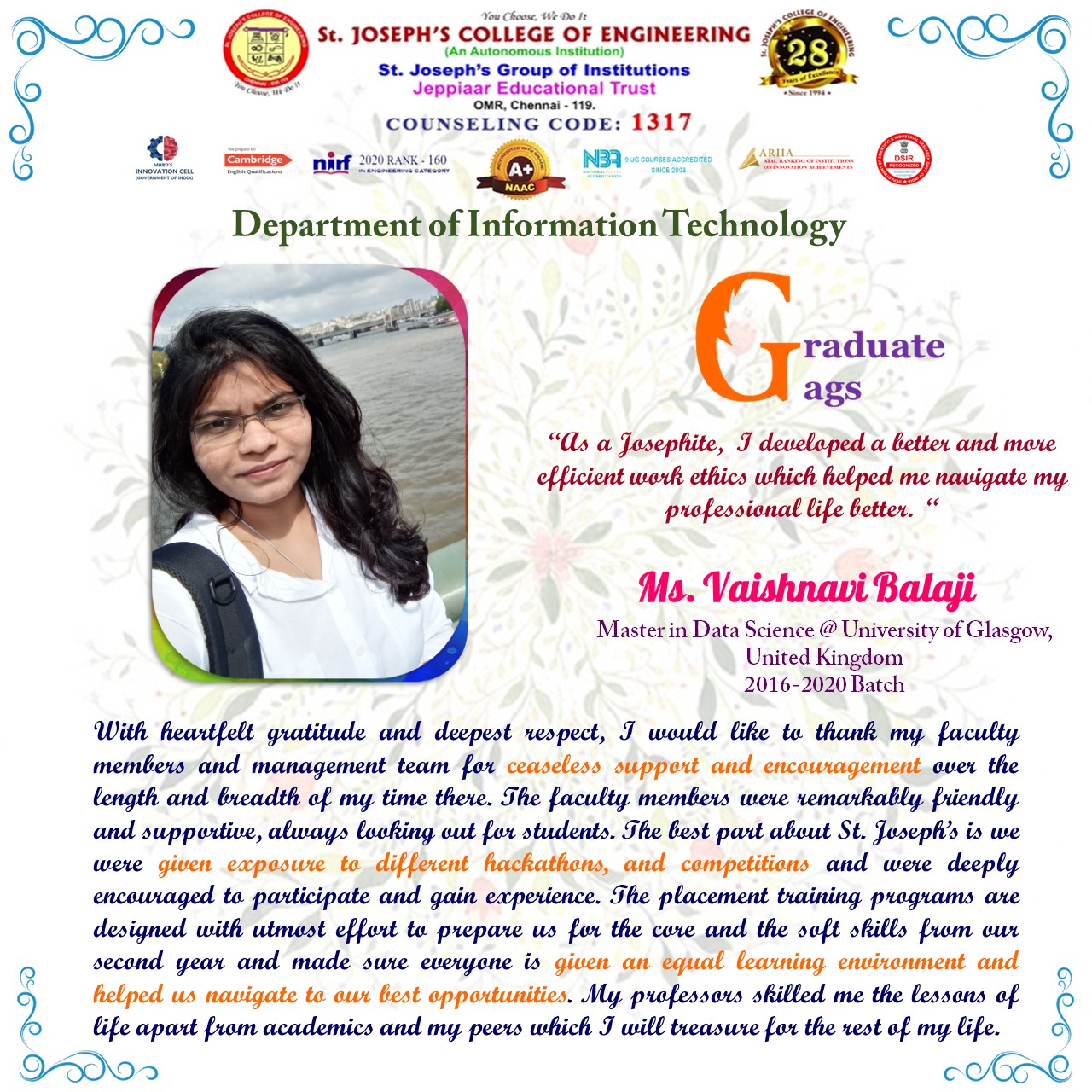
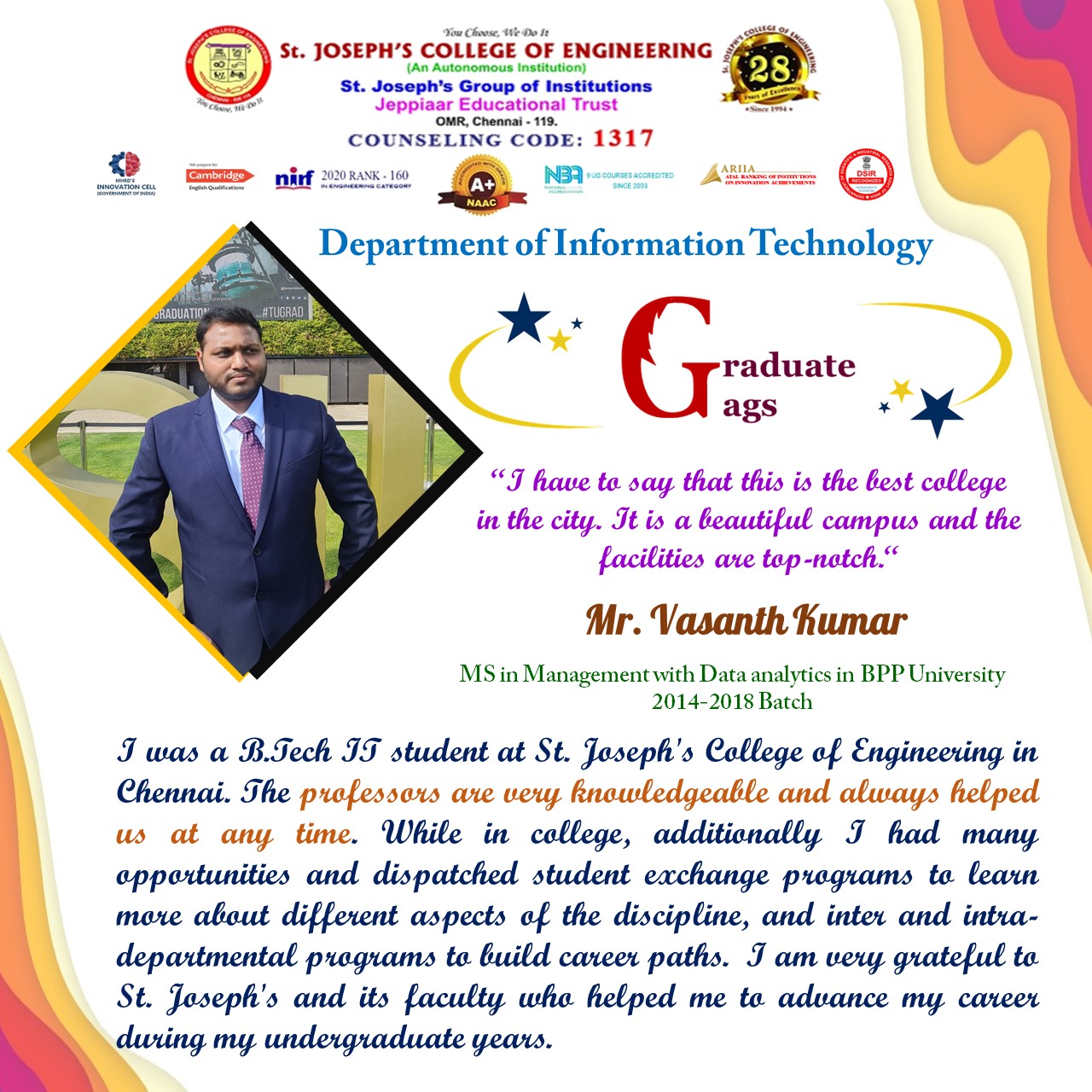
Teaching and Learning Process
The Teaching and Learning Process equips students with technical expertise, problem-solving skills, and professional competence, aligning with POs and PSOs for holistic development.
Conceptual Learning: Strong foundation in mathematics, science, and engineering fundamentals through interactive lectures and case studies (PO1, PO2, PO4, PSO1).
Hands-on Training: Practical exposure to IT tools, programming, and emerging technologies through labs, workshops, and project-based learning (PO5, PO12, PSO3).
Problem-Solving & Research: Engaging in coding competitions, hackathons, and industry projects to develop analytical and risk management skills (PO2, PO4, PSO1, PSO2).
CO-PO
-
PO1: Engineering knowledge: Apply the knowledge of mathematics, science, engineering fundamentals, and an engineering specialization to the solution of complex engineering problems.
-
PO2: Problem analysis: Identify, formulate, review research literature, and analyze complex engineering problems reaching substantiated conclusions using first principles of mathematics, natural sciences, and engineering sciences.
-
PO3: Design/development of solutions: Design solutions for complex engineering problems and design system components or processes that meet the specified needs with appropriate consideration for the public health and safety, and the cultural, societal, and environmental considerations.
-
PO4: Conduct investigations of complex problems: Use research-based knowledge and research methods, including design of experiments, analysis and interpretation of data, and synthesis of the information to provide valid conclusions.
-
PO5: Modern tool usage: Create, select, and apply appropriate techniques, resources, and modern engineering and IT tools including prediction and modeling of complex engineering activities with an understanding of the limitations.
-
PO6: The engineer and society: Apply reasoning informed by the contextual knowledge to assess societal, health, safety, legal and cultural issues and the consequent responsibilities relevant to the professional engineering practice.
-
PO7: Environment and Sustainability: Understand the impact of the professional engineering solutions to societal and environmental contexts, and demonstrate the knowledge of, and need for sustainable development.
-
PO8: Ethics: Apply ethical principles and commit to professional ethics and responsibilities and norms of the engineering practice.
-
PO9: Individual and team work: Function effectively as an individual, and as a member or leader in diverse teams, and in multidisciplinary settings.
-
PO10: Communication: Communicate effectively on complex engineering activities with the engineering community and with society at large, such as, being able to comprehend and write effective repo rts and design documentation, make effective presentations, and give and receive clear instructions.
-
PO11: Project management and finance: Demonstrate knowledge and understanding of the engineering and management principles and apply these to one’s own work, as a member and leader in a team, to manage projects and in multidisciplinary environments.
-
PO12: Lifelong learning: Recognize the need for, and have the preparation and ability to engage in independent and lifelong learning in the broadest context of technological change.
PSO
-
PSO1: To analyse and design an efficient information management system which uses the concepts of Information technology to deliver technological solutions and to analyse its impact in the societal and human context. PSO2: To identify the resources needed for building complex IT projects with an understanding of risk management processes, operational and policy implications considering human, financial and ecological factors. PSO3: To develop and test software projects by applying IT tools and techniques for the development of computational systems to serve the needs of the community.
